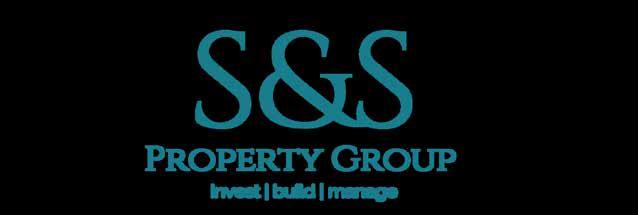






We are the home for Jewish wisdom








We are the home for Jewish wisdom
generations of students and teachers alike.
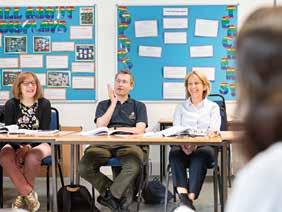


We offer a home for lifelong learners, a place to explore Jewish wisdom in all its depth and breadth. Whether through a short course or a year-long programme, you’ll find opportunities to engage with Tanach, Talmud, and Jewish thought, as well as art, history, politics, science, and culture. This semester’s programme ranges from close text study to immersive museum tours, from contemporary ethical debates to the voices of great Jewish thinkers. Whatever path you choose, you’ll be learning with outstanding educators and academics who open new ways of seeing our tradition and our world.
We create an environment where students and faculty thrive together, advancing critical study to the highest standards of modern academic scholarship. Our BA and MA pathways prepare the next generation of teachers, educators, leaders, and thinkers to engage deeply with Jewish Education and today’s world.
Our degrees are validated by Middlesex University.

We are at the forefront of teacher training, preparing educators who go on to shape schools and communities across the UK. We offer DFE accredited pathways into both primary and secondary teaching, with programmes tailored to your level of experience. Whether you’re just starting out or looking to change your career, we provide the skills, support and inspiration to become a confident, qualified teacher.










PARASHAT HA'AZINU
SHABBAT: BEGINS ENDS
London 18:19 19:19 Manchester 18:25 19:27 Leeds 18:19 19:28 Liverpool 18:25 19:33 Birmingham 18:22 19:25
Antwerp 18:57 20:03
Bournemouth 18:22 19:28
Gateshead 18:18 19:28
Jerusalem 17:45 18:57

BY DAVID SAFFER
Hopes have been raised for the release of all 48 hostages held in captivity for 726 days in Gaza a week before the second anniversary of the 10/7 terror attack by Hamas.
President Donald Trump and Prime Minister Benjamin Netanyahu announced Israel’s agreement to a US 20-point peace plan to end the Gaza war at the White House on Monday.

Trump hailed an “historic day for peace” and claimed the hostages, living and dead, could be released in 72 hours.
“Tis is potentially one of the biggest days ever in civilisation,” he said, adding that Israel would have the “absolute right” to destroy the threat of Hamas if they reject the plan.
Hamas is reviewing the US plan in ‘good faith’, they have a deadline of a few days according to Trump, but it has no role in any future governance of Gaza and there is no recognition of a Palestinian state in the agreement.
European and Middle Eastern leaders, including Prime Minister Keir Starmer, welcomed the plan where Gaza would be
“When


governed by a ‘Board of Peace’ chaired by Trump. Te committee will comprise international experts and heads of State to be announced including former Prime Minister Tony Blair.
Blair hailed Trump’s “bold and intelligent plan” bringing immediate relief to Gaza and the chance of a brighter future for its people whilst ensuring Israel’s enduring security and release of hostages.
Trump thanked Netanyahu, who will “forcibly resist” Palestinian statehood, and praised Saudi Arabia, Qatar, Egypt, Jordan, Turkey, Pakistan and Indonesia leaders for backing the plan.
“All terror infrastructure will be destroyed, including tunnels and weapons production
facilities,” he said. “Working with the new transitional authority in Gaza, all parties will agree on a timeline for Israeli forces to withdraw, in phases.”
Netanyahu hailed Trump as Israel’s “greatest friend” in the White House.
“We are taking a critical step towards ending the war in Gaza and setting the stage for dramatically advancing peace in the Middle East,” he said.
Trump’s plan, Netanyahu noted, achieved Israel’s war aims of returning the hostages, disarming Hamas’ military and political capabilities, demilitarising Gaza with Israel retaining security responsibility, including a security perimeter, for the foreseeable future, and ensuring Gaza “never again” poses a threat to Israel.
Hundreds of Palestinian prisoners will be released in the deal and Gaza would have a peaceful civilian administration run by neither by Hamas or the Palestinian Authority.
Continued on page 8
Continued from page 1
He also welcomed Trump’s decision to








This year, make Israel the centre of your world

Wishing you and your family a meaningful and uplifting Sukkot!











BY DAVID SAFFER
Prime Minister Benjamin Netanyahu vowed to “hunt down” Hamas if they
path. And New Zealand has also formally rejected the notion.
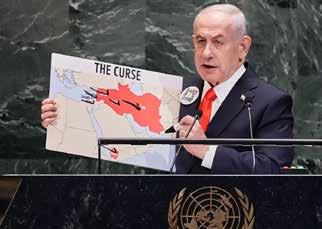
don’t disarm in his keynote address at the UN General Assembly last week.
With loud speakers relaying his speech into Gaza, Netanyahu addressed the hostages, stating: “We have not forgotten you for even a second,” he said. “Te entire nation is with you. We will not rest and we will not relent until we bring you all home, the living and the fallen alike.”
Israel’s leader had a stern message to Hamas, noting: “Lay down your arms. Free all hostages now … If you do, you will live. If you don’t Israel will hunt you down.”
Netanyahu called on Hamas to surrender, stating: “If Hamas agrees to our conditions the war can end immediately. Gaza will be demilitarised, Israel will take security control and a civil authority will be established by Gazans and others, committed to peace with Israel.”
Netanyahu slated countries recognising a Palestinian state including Britain, France, Canada and Australia, exclaiming: “Your disgraceful decision will encourage terrorism against Jews and against innocent people everywhere… You know what message the leaders who recognise the Palestinian state this week sent to the Palestinians? It’s a very clear message, murdering Jews pays of.”
Regarding antisemitism, Netanyahu said world leaders “buckled” under the pressure of a biased media, radical Islamist constituencies and antisemitic mobs.
“Tere’s a familiar saying, when the going gets tough, the tough get going. Well, for many countries here, when the going got tough, you caved,” he said.
“Behind closed doors, many of the leaders who publicly condemn us privately thank us,” Netanyahu added. “Tey tell me how much they value Israel’s superb intelligence services that have prevented, time and again, terrorist attacks in their capitals.”
Netanyahu praised President Donald Trump as Israel’s “most important” international ally.
France, Canada, Australia and the UK joined 148 countries recognising a Palestinian state. G7 members the US, Japan, Germany and Italy have not followed that
New Zealand Foreign Minister Winston Peters told the assembly: “With a war raging, Hamas remaining the de facto government of Gaza and no clarity on next steps, too many questions remain about the future state of Palestine.”
Hamas and the Palestinian Authority welcomed the expected announcement but nothing in Gaza has changed as Israel continues to dismantle the terror group.
In Israel, there was contempt for the move by the G7 quartet.
“You are rewarding terror with an enormous prize,” Netanyahu said. “I have another message for you, it’s not going to happen. Tere will be no Palestinian state to the west of the Jordan River.”
President Isaac Herzog added: “It will not help one Palestinian, it won’t help free one hostage, and it will not help us reach any settlement between Israelis and Palestinians. It will only embolden the forces of darkness. Tis is a sad day for those who seek true peace.”
Israel’s Foreign Ministry “categorically rejected” the declaration.
Foreign Minister Gideon Saar noted: “Tose governments that decided to join the recognition precisely now are also doing an immoral, outrageous and especially ugly action… Our future will not be determined in London or Paris, It will be determined in Jerusalem.”
Leader of the Opposition Yair Lapid said: “Recognition of a Palestinian state is a diplomatic disaster. It’s a terrible step and a reward for terrorism.”
Hamas described recognition as an important step in establishing its
independent state with Jerusalem as its capital.
Netanyahu thanked Conservative Party leader Kemi Badenoch for describing Starmer’s decision as “rewarding terrorism” and was “absolutely disastrous”.
“We will all rue the day this decision was made,” she said.
Families of hostages held in Gaza condemned Starmer’s decision.
Ilay David, brother of hostage Evyatar David, said: “It harms the negotiations, it is bad for Gazans, bad for the hostages. Until the hostages are home and Hamas de-weaponises we cannot recognise anything.”
Mandy Damari, British mother of released hostage Emily Damari, said that
Starmer is under a two-state delusion. “While one of the states is still run by a proscribed terrorist organisation whose very charter is to annihilate Israel from the river to the sea, a two-state solution can never happen,” she said. “If he thinks he is right, he is rewarding Hamas, the war is not over and Hamas are still in power in Gaza.”
Sharon Sharabi, brother of former hostage Eli Sharabi commented: “History will judge those who supported terrorism. Te world refuses to understand that Israel is the only country in the Middle East that encourages democracy, stability and peace. Countries that do not join these goals will soon encounter Islamic terrorism within their own borders.”
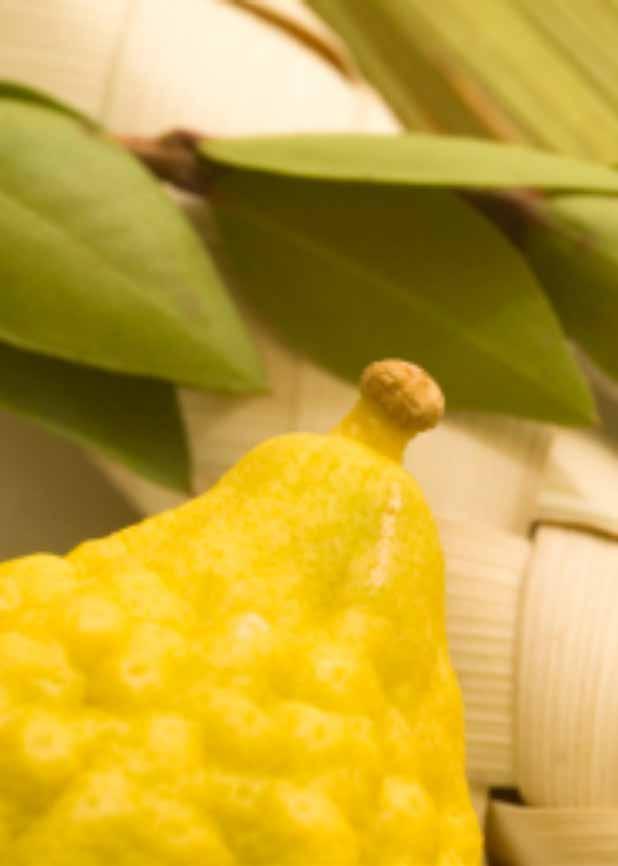



Continued from page 1
Netanyahu praised the “courage and sacrifce’ of IDF soldiers serving on the frontline in a war between “civilisation and barbarism”.
He also welcomed Trump’s decision to back Operation Rising Lion and Operation Midnight Hammer which struck a “decisive blow” against Iran’s nuclear and ballistic missile program.
Netanyahu added: “We are giving everyone a chance to do this peacefully without further bloodshed, but if Hamas rejects the plan or accepts and counters it, Israel will fnish the job.’
Netanyahu was encouraged Trump did not recognise a Palestine state at the United Nations General Assembly gathering last week as it would encourage terror, undermine security and threaten Israel’s existence.
He also appreciated Trump’s “frm position” against the PA having any role in Gaza without a “radical and genuine” transformation including recognition of a Jewish state.
Netanyahu said that under Trump’s leadership Israel could “reenergise” the Abraham Accords.
“We can expand them to many more Arab and Muslim nations that choose
moderation over extremism,” he said. “Tere is an opportunity, possibilities that no one dreamed of.”
Trump added: “Israel is not going anywhere. Tey’re going to co-exist with other people and countries in the region, from Syria to Lebanon and Saudi Arabia. Te promise of a new Middle East is so clearly within our reach.”
Netanyahu said Israel will never forget the horrors of 10/7 and will do “whatever is necessary” to ensure it never happens again.
“Israel’s enemies have learnt a hard truth, those who attack us pay a heavy price but those who partner with us
BY ADAM MOSES
Jewish organisations condemned authorities incompetent after the collapse of the terror trial against Kneecap’s Liam O’Hanna at Woolwich Crown Court last week.
Te charge related to the alleged support of Hamas and Hezbollah at the O2 Forum in Kentish Town last November. Both are proscribed terrorist organisations in the UK.
Chief Magistrate Paul Goldspring threw the charge out as the Crown Prosecution Service had not received consent of the Attorney General to bring the case. Campaign Against Antisemitism said the matter was “utter incompetence” by authorities.
“What good is our criminal justice
system if it cannot get its act together in a case of a man stood draped in the fag of a proscribed terrorist organisation that wants to annihilate all Jews shouting ‘Up Hamas, up Hezbollah’?” they said. “Heads must roll over this humiliating debacle.”
Tey added: “Here is a prime example of how difcult it is for British Jews to get justice in this country. Not long ago, the CPS dropped all charges after men drove through London in broad daylight with a megaphone shouting ‘**** the Jews.’ A lot of Jewish people are starting to throw up their hands in despair at the dire state of our criminal justice system, which clearly is incapable of protecting them.”
National Jewish Assembly chairman, Gary Mond observed: “Whether Lord Hermer’s failure to give the requisite
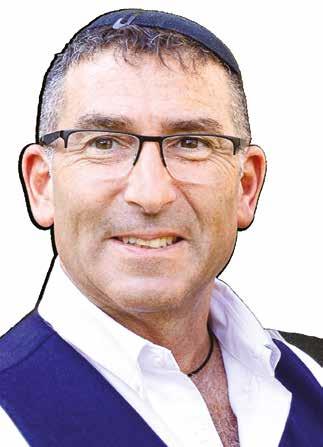
consent in time was accidental or a deliberate attempt to obstruct justice, only he will know. Tis farcical failure to prosecute will lead to celebrations by antisemites everywhere.”
He added: “A much tougher attitude needs to be displayed towards Kneecap and other groups who promote antisemitism and hatred of Israel. I commend the banning of Kneecap by Hungarian international communication minister Zoltan Kovacs a couple of months ago on the grounds that their performances pose a national security threat, and would urge countries throughout the world to follow Hungary’s excellent example and ban them too.”
Jonathan Metliss, Action Against Discrimination chairman, said: “Te terrorism charge being dropped is appalling.
advance progress and security for their peoples,” he noted.
Netanyahu apologised to the President of Qatar Tamim bin Hamad Al Tani after a recent operation targeting Hamas leaders and welcomed a trilateral body with the US and Qatar to work out “respective grievances”.
Praising Trump’s leadership again, he concluded: “Israel and US can change the face of the Middle East.”
Te Hostage and Missing Families Forum thanked Trump in a letter and called on Netanyahu to order an immediate cessation of fghting in Gaza which was endangering the fate of hostages.
Hopefully, the CPS will fnd another way of bringing the charge. We wait with bated breath but with no expectation.”
CPS is reviewing the decision of the court, adding that the decision could be appealed.
A Metropolitan Police spokesperson said: “We are aware of the decision by the court in relation to this case. We will work with the CPS to understand the potential implications of this ruling for us and how that might impact on the processing of such cases in the future.”
Goldspring told Woolwich Crown Court the charge against O’Hanna was unlawful and null.
O’Hanna’s defence argued the charge was not brought to the Director of Public Prosecutions until May 22, a day after the six-month time limit.
- 10th, 11th & 12th

BY ADAM MOSES
Israel’s Ministry of Tourism in the UK has hailed a surge in visitors to Israel over the summer.
Despite global challenges 118,200 tourists went to Israel in August. Te fgures are 72% increase compared to 68,800 recorded last year. Visitors from the UK made up 10% of the numbers, over 66,000 travelling between the two countries in 2025 year-to-date.
In other promising news, British Airways is set to return to Israel and is currently taking bookings for fights between London Heathrow and Ben Gurion Airport from Sunday October 26 2025.
“Tese fgures represent amazing resilience and continued confdence in Israel as a destination,” said Michael Ben Baruch, UK Tourism Director.
“Te positive spike in traveller numbers from the UK and the rest of the world in August signals that we are moving in the right direction, demonstrating the
enduring appeal of Israel for visitors from across the world. We are also encouraged and look forward to BA’s return to scheduled service in October.”
Between January and August 2025, total tourist entries reached 814,000 globally, a 21% increase during the same period in 2024. Tis fgure refects an ongoing recovery process, sitting below the circa two million entries in the corresponding months of 2023.
In related news, EL AL has received a fve-star rating in the Flight Experience category from APEX (Airline Passenger Experience Association) for 2026 marking a ffth consecutive year of top-tier recognition.
EL AL was also included in APEX’s list of the Top 25 Airlines Worldwide, selected from over 600 carriers reviewed in 2025.
Passengers evaluated fight experience across seat comfort, cabin crew service, food and beverages, entertainment system, and Wi-Fi services.
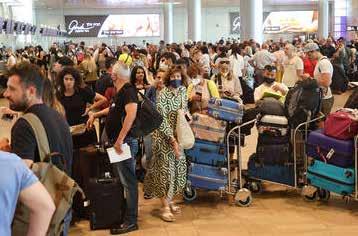
EL AL’s excellence places it among the world’s leading airlines and refects a commitment to delivering professional, high-quality and uncompromising service.
A spokesman said: “We’ve set a clear goal, to lead and elevate the customer experience in aviation. Receiving this award during a year full of challenges makes it especially meaningful. We are proud that our service continues to meet the highest international standards.”

















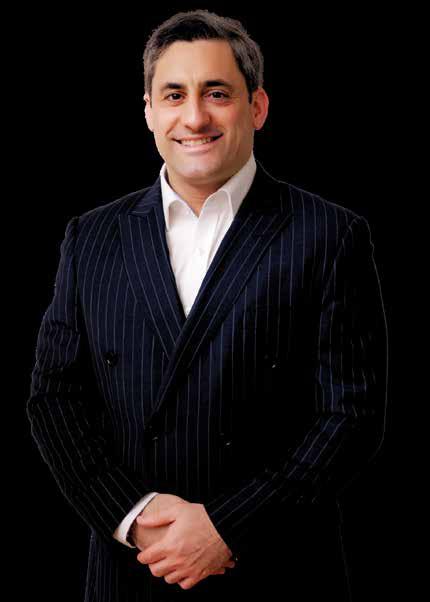
Rabbi Leo Dee, a British citizen residing in Israel, is challenging Prime Minister Keir Starmer’s decision to recognise a Palestinian state, and will attend the Labour Party Conference in Liverpool to explain why.
Leo Dee’s wife, Lucy, and two teenage daughters, Maia and Rina, were murdered in cold blood by Hamas terrorists from Nablus in April 2023. Since then, their killers’ families have received monthly salaries from Mahmoud Abbas’s
Palestinian Authority—fnanced under his “pay-for-slay” law that guarantees lifelong rewards to those who kill Jews.
British Taxpayers Funding Terror
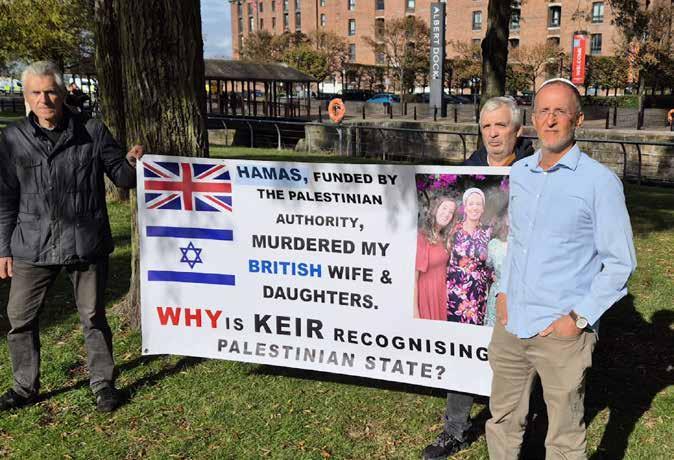

Every month, President Abbas signs the cheques to pay the families of the men who murdered my family. Britain has been funding the Palestinian Authority to the tune of tens of millions of pounds over the past decade. Tat means that while the killers of my wife and children—who were British citizens— are being rewarded by Abbas, they are efectively being fnanced by the British taxpayer. Meanwhile, no compensation or justice has been ofered to the British victims of British-funded terrorists.
A Palestinian State is a Terror State Western attempts to distinguish Hamas from the Palestinian Authority (PA) are naive. Te PA trains, celebrates and funds Hamas terrorists. Abbas is not a partner for peace but a wolf in sheep’s clothing. He is training Palestinians in the West Bank to become terrorists from age 8 and educating them to kill Israelis.
Instead of repeating the failure of the Oslo Accords, we should be creating a better future for the Palestinian people by getting rid of their terrorist government - Hamas and the PA - who steal their money and their food, and use them as human shields.
Keir Starmer’s recognition of a Palestinian state is a policy of appeasement that endangers British people. Appeasement never works. Winston Churchill said of Neville Chamberlain who recognized the Nazi invasion of Czechoslovakia: “An appeaser is one who feeds a crocodile, hoping it will eat him last.”
Starmer’s lack of judgment in preparing to do this “deal with the devil” will create a Palestinian terrorist state funded by British taxpayers, located 1 mile from Jerusalem, and 10 miles from Tel Aviv. Te consequences will be horrifc, and the Palestinian people will sufer too. Tey are also victims of Hamas terror, and constantly betrayed by the corrupt Palestinian Authority.




Te Honorary Ofcers and Council of the New West End Synagogue are pleased to announce the election of Rabbi Aaron and Rebbetzin Miriam Lipsey as the community’s new Rabbinic couple.
Te appointment follows an extensive recruitment process and marks the beginning of a new chapter in the life of one of London’s most historic synagogues, built on a shared vision, renewed energy and enduring communal values.
Rabbi and Rebbetzin Lipsey have served the United Hebrew Congregation of Newcastle for the past 14 years. Rabbi Lipsey is widely regarded for his Torah scholarship, warmth, humour, and humility. In addition to his congregational leadership, he has played a signifcant role as University Jewish Chaplain, supporting students across the region and combining intellectual depth with approachability and care. Rebbetzin Lipsey has been an equal partner in this work, extending hospitality and generosity to all, and fostering a welcoming environment where Jewish life fourishes. Together, they are blessed with fve children and two grandchildren and bring to their new role a unique combination of scholarship, compassion, and commitment to Jewish community life. In a joint statement, Rabbi and Rebbetzin Lipsey said: “We are humbled and
excited by the opportunity to become part of the New West End Synagogue family. We are inspired by the community’s rich history and welcoming spirit and look forward to building new memories, nurturing each individual’s journey, and creating a home where all can celebrate, learn, and grow in Jewish life.”
Te Rabbi and Rebbetzin added that: “Leaving the United Hebrew Congregation of Newcastle, a community that has given us so much love and inspiration, is bittersweet. We carry those treasured relationships and experiences with us as we begin this new chapter.”
Jef Altman, Chair of New West End Synagogue, said : “Te New West End Synagogue looks forward to welcoming Rabbi and Rebbetzin Lipsey in January 2026, as the community continues to strengthen its role as a centre of Jewish spirituality, learning and cultural vibrancy in Central London.”

• Tax-ef icient investing before and afer Aliyah
• Tax-ef icient income afer 10-year tax-free period
• Receive your entire pension pot tax-free
• Specialist portfolio management for Olim
• No Inheritance Tax (for non-UK-situated assets)
We are seasoned experts in providing long-term financial planning advice for those making Aliyah. Scan the QR code to read more
With investing, your capital is at risk. Tax treatments are subject to individual circumstances and are subject to change.
JTeen has ofcially launched the Mastering Your Mind Wellbeing Workbook for Teens, a groundbreaking new curriculum that aims to prevent the very crises Jewish teens are struggling with every day.
Te workbook is a three-volume curriculum, that gives every student practical strategies to face life with confdence. Covering 13 “Life Hacks” – from managing stress and anger to building friendships, boosting confdence, fnding balance and speaking up, the workbook is rooted in Torah hashkofa, endorsed by Rabbonim, and fully mapped to government PSHE wellbeing requirements. Every student receives their own workbook, while teachers are equipped with lesson plans, PowerPoints, activities and quizzes.
Speaking at the launch event, JTeen trustee Saul Kelly said he was “so excited about this project and the possibility of teaching thousands of kids coping skills for life.” Adele Busse, Head of Grants at Jewish Child’s Day, the key sponsor whose generosity has made the frst year of rollout possible, expressed her hope that “the workbook will end up in the hands of every single Jewish secondary school student.”
JTeen founder and author Yaakov Barr spoke about the harrowing crises faced by young people on the JTeen
Support Line every night: “We see the self-harm, the suicidal thoughts, the low self-esteem, the lack of motivation and resilience. Tis book has the power to prevent them before they begin.”
Rabbi Zimmerman praised JTeen for “the cosmic efort of not only helping those in crisis, but now creating a product to stop them happening in the frst place.”
Finally Jason Marantz, Director of Education for the Borough of Hackney, went further, pledging to aim to introduce the workbook into every Jewish school in the borough, describing it as a vital step towards embedding resilience and prevention across the community.
Already in use in schools in London and Manchester, the Mastering Your Mind workbook has been described by one local authority as a “game changer” – the frst structured, Torah-aligned wellbeing curriculum designed to change lives before crisis hits.
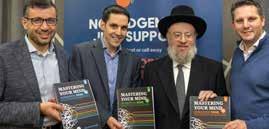

BY DAVID SAFFER
Over seven decades have passed since the Rebbe, Rabbi Menachem M Schneerson, launched his Lulav & Etrog Campaign.
A few weeks before Succot in September 1953, the Rebbe’s chief secretary, Rabbi Chaim Mordechai Aizik Hodakov, passed on an instruction about the Rebbe’s initiative to yeshivah students Elya Gross and Rabbi Berel Shemtov. Both recruited other students.
Gross recalled in his diary: “He told us that we should go out into the streets with a lulav and etrog and also gather children in the Succah and help them make the blessing on the etrog.”
Shemtov compiled a report of what happened for the Rebbe.
During the frst two days of Succot, 70 yeshivah students, 35 each day, went to the streets and parks of Crown Heights, New York, and the Bronx. Incredibly, 1,500 Jews fulflled the mitzvah.
Rabbi Yehuda Krinsky was one of the students and became a member of the Rebbe’s secretariat.
“It was a very quiet afair, person to person, but certainly it was something new,” he recalled.
Chabad was growing back in ‘53 with a few dozen students at the central yeshivah in Crown Heights. Goldman recalled an incident in the late 1940s prior to the Rebbe leading the organisation.
“Te Rebbe called in the boys, it wasn’t Succot, and told us to go out on the street and speak to non-observant Jews,” he said. “We said ‘We should speak to them? We don’t know how.’ Te Rebbe said, ‘I’ll show you.’”
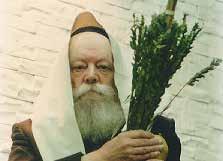
Te Rebbe led Goldman and his students to a commercial part of ‘Jewish’ Crown Heights where people were sitting around.
Goldman takes up the story: “Te Rebbe got up on a bench and started to speak. After a few minutes he got down, turned to us, and said ‘Nu, gezehn (you saw)?’ Tat was the frst time we saw what it meant to share a Jewish idea with
such an audience.”
Te Rebbe’s lesson caught on and grabbed attention in local newspapers.
‘Be Careful, Lubavitchers Abound!’ was a headline in the National Jewish Post and Opinion in October 1965.
‘As in previous years,’ the journalist wrote, ‘Lubavitchers will take to the crowded intersections of cities around the world with Essrog and Lulav in hand to urge the observance on those not observing.’
Lubavitch students were soon making a mark throughout the year.
Rabbi Irving J. Rosenbaum wrote in his ‘Rabbi at Random’ column in the Chicago Sentinel in 1968: “While the rest of us are arguing why young Jews do not come to synagogue to pray, let alone put on tefllin, the Lubavitcher are doing something about bringing the synagogue, and the teflin, to them. Tis direct, almost primitive approach has marked their amazing eforts in helping to meet the religious needs of Soviet Jewry, maintaining schools for Jews of Persia as well as of those in Brooklyn, or of getting special ‘shmura matzo’ to GIs in Vietnam. While most organisations are explaining why the problem cannot be solved, the Lubavitcher Hasidim go out and solve it.”
In 1980, the Rebbe stressed the importance of sharing mitzvahs with Jews.
Lubavitcher Chassidim visited nursing homes and senior citizen centers for the Lulav & Etrog campaign. Results were
astounding.
“Doctors and nurses were astonished to see such a transformation,” the Rebbe wrote. “Persons who had spent countless days in silent immobility, deeply depressed and oblivious to everything around them, the moment they saw a young man walk in with a Lulav and Esrog in his hand suddenly displayed a lively interest, eagerly, grasped the profered Mitzvah-objects, some of them reciting the blessings from memory, without prompting. Te joy in their hearts shone through their faces, which had not known a smile all too long.
“One need not look for a mystical explanation for this reaction. Understandably, the sight of something so tangible and clearly associated with the joy of (Succot) evidently touched and unlocked vivid recollections of experiences that had permeated them in earlier years.”
Te Rebbe wrote that the ‘Four Kinds’ (etrog, lulav, myrtle and willow) represented four kinds of Jews. By taking them together fulflled the mitzvah of Succot.
During Sukkot in 1970, he noted: “When we fulfll the mitzvah of lulav, we see to it that a second Jew also fulflls the mitzvah of the ‘Four Kinds’ by giving it a shake, then the entire world shakes!” Jews in the coming days around the world will carry on this tradition and Chabad-Lubavitch emissaries will be continuing the Rebbe’s campaign across four continents.


When the Jewish Care Families Committee hosted a joyful Jewish Care Tots Intergenerational Shabbat Party at the Maurice and Vivienne Wohl Campus, 115 guests aged 0–103, including babies, tots, children, parents, grandparents and residents from the care campus’ Otto Schif care home for people living with
dementia, enjoyed a true intergenerational Shabbat-themed celebration.
From songs and smiles to sensory fun, the party was brought to life by Smudge Sensory & Messy Play and flled the room with warmth and connection across the generations.
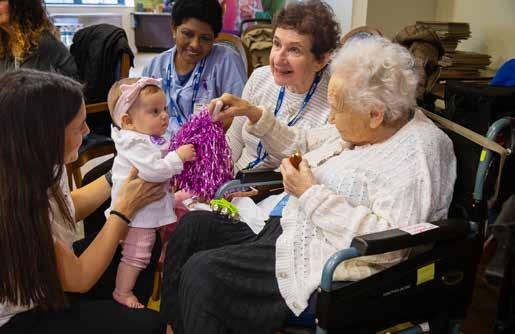
Jewish Futures is a large, Jewish educational charity that serves as an umbrella body for a variety of charities and organisations. We are committed to delivering focused strategies within the Jewish Future’s Trust (JFT) family, striving to make a meaningful impact in the community we serve. The Technical Project Manager will act as the bridge between the Jewish Futures organisations and the development team. They will be responsible for gathering and understanding IT requirements from the organisation departments, translating them into actionable technical specifications, and ensuring successful delivery.
KEY RESPONSIBILITIES
• Engage with JF organisations to capture business and IT requirements.
• Translate stakeholder needs into clear technical briefs for the development team.
• Oversee project timelines, deliverables, and communication across teams.
• Ensure alignment between organisational objectives and technical implementation.
• Provide regular progress updates to stakeholders.
• Business Analysis.
and
BACKGROUND & SKILLS
• Experience in web development, ideally with exposure and understanding of:
• React / Next.js
• AWS & Azure Laravel (PHP framework)
• Familiarity with enterprise systems, particularly Microsof Power Platform and Dynamics 365.
• Strong project management and communication skills.
• Ability to balance technical understanding with business needs.

Please note: Te views of the letters do not necessarily refect the views of this newspaper. Letters may be edited and publication is at the discretion of the editor.
Dear Editor,
As one sharp-witted newspaper op-ed put it, “Don’t punch us in the face on Sunday and wish us better on Monday”. Many in the Jewish community will have been left reeling at the sight of Prime Minister Sir Keir Starmer MP’s Rosh Hashana message last week. In particular, the premier’s temerity to mention the 48 remaining Israeli hostages, while having taken steps which efectively rewarded their capture by Hamas in the frst place. Tose steps – the UK’s recognition of a Palestinian state, without conditions (other than on Israel itself), and with barely a scintilla on how the key legal criteria of statehood are currently met –will arguably go down as one of the most objectively senseless pieces of statecraft in modern times.
Tere are two main points in time from which to analyse the UK Government’s decision. Te frst is the original announcement on recognition back in
July. One cannot understate the degree to which that decision was an unmitigated logical omnishambles. Despite France leading the pack, persuading countries such as Canada and Australia to get on board by accepting written commitments from the Palestinian Authority’s Mahmoud Abbas, the UK somehow managed to go even further than all of them. No conditions on the Palestinian Authority. None whatsoever on Hamas. And all of them, instead, on Israel: unilaterally end the war in Gaza, commit to a two state solution, and allow the UN to restart aid at scale.
Te consequences were as rationally bizarre as they were morally dubious. If Israel did not comply with all of Sir Keir’s conditions by September, the UK would recognise Palestine despite it lacking the key legal ingredients for statehood, with Hamas remaining in power and the war in Gaza left to ramble on. But if Israel *did* comply with all the conditions –which, remember, included *committing to a two state solution*... the UK would NOT recognise a Palestinian state in September.
Read that last sentence again, and you see just how much of an afront to logic and reason this decision was from the outset.
With a ceasefre in Gaza no closer since that time, we come to the second point of reference, last week, with the UK’s following through on recognition, after Israel (inevitably) rejected Sir Keir’s conditions. Predictably, such recognition has done nothing to immediately change the situation in Gaza as Sir Keir had hoped. What it has done, however, is set a disturbing symbolic precedent. Te UK has recognised a state whose territories remain governed by a group *the UK’s own government* calls terrorists, and by an entity that still pays the salaries of prisoners that *the UK’s own government* calls terrorists. Tis is a fact so chilling that the actual legal criteria for statehood (a permanent population, defned borders, a single governing entity and the capacity to enter into diplomatic relations independently) almost fade into insignifcance.
And how did Sir Keir justify his decision to recognise Palestine while Hamas remain in power and continue to hold hostages? First, he claimed, along with French President Macron, that this decision somehow *isolates* Hamas, rather than rewarding or empowering them, because, he says, Hamas don’t want two states. It’s not just that the opposite has happened - Hamas have thanked the UK for its actions and hailed them as an important step towards an independent Palestinian state - it’s that such a response was glaringly obvious. Te last time I checked, if you want 100% of something you currently have 0% of, then being given half of it gets you closer to 100%; it doesn’t keep you at zero.
Second, Sir Keir claimed that Hamas must disarm, accept no future role to play in Gaza, and release the hostages. Notwithstanding that *these are Israel’s exact conditions for ending the war*, if any reader happens to know where on the Lord’s good earth Hamas are going, please do write in. Hamas have always maintained that, even in a two-state scenario, they would not disarm until Israel is destroyed. Even in the latest ceasefre talks, Hamas stated that their price for disarming is an independent Palestinian state with Jerusalem as its capital – in other words, no Israel. Having just been given virtually half of what they seek *by their enemy’s own allies*, it’s no wonder Hamas have been thanking our Prime Minister.
Te unmitigated failure of logic in the UK’s strategy can be summed up in just two simple, mutually-reinforcing sentences. If recognition of Palestine was *that* obvious and *that* urgent, Sir Keir wouldn’t have needed to condition it on the end of the war in Gaza. And if ending the war in Gaza was *that* obvious and *that* urgent, Sir Keir wouldn’t have needed to make it a condition on which the UK would recognise Palestine.
Ultimately, Sir Keir’s tool of choice for achieving his “primary aim”, of immediately improving the situation in Gaza, was a purely symbolic act which - even putting aside its insults to morality and logic - took two whole months to take efect.
Far from being any sort of rational response to sufering in Gaza, this decision stands out naked in the open, as having only ever been motivated by domestic politics.
Naji Tilley, London NW4
United Synagogue celebrated the completion of their Ma’aleh Women’s Learning Programme with a Siyum (celebration) at South Hampstead Synagogue. Te two-year journey in advanced Torah study was led by the dynamic Rebbetzen Lauren Levin of South Hampstead United Synagogue and Rabbanit Shani Taragin, a renowned teacher at
multiple education institutions in Israel. Te programme brought together over 20 committed women who immersed themselves in Jewish texts twice a week, along with dedicated Sunday sessions throughout the year.
Te Ma’aleh Programme was designed to deepen Torah learning and empower women through serious engagement with Halachah, Tanach and Jewish thought. Participants came from diverse backgrounds but shared a common passion: a deep desire to grow in their Jewish learning and contribute to the community.

Te United Synagogue is
launching a new programme, ‘Women’s Bet Midrash’ in October, building on Ma’aleh’s success, led by Rebbetzin Lauren Levin. Tis year-long course will take place once a week and will focus on the Books of Ezra and Nechemia, exploring the lives of the Jewish people during the Second Temple era and the lasting legacy of that period on Jewish life today.
Te programme will include textual analysis in Hebrew as well as a deeper understanding of the development of Jewish practice and Jewish history. For more information about the Women’s Bet Midrash, please be in touch with Laurie Maure at lmaurer@theus.org.uk.
Rebbetzen Lauren Levin said, “Ma’aleh started on 10 October, 2023, in the ‘shadow of death’ of the October 7 massacre. Te course became our ‘tree of life’ and provided immense strength over the following two turbulent years. Te passion and scholarship of the Ma’aleh participants will follow them wherever they go, imbuing our communities with rigorous and meaningful Torah study and connection.”
Aviva Kaufmann, one of the
programme participants, shared: “I was looking for something that would really push me, to upskill my Jewish learning. Te interview which I had to take part on the course with Rebbetzen Lauren was amazing as she even did some learning with me during it and I was hooked! Te programme ofered a real immersion in Jewish texts, and I loved the balance between Halachah and deeper conceptual learning. I’ve always been passionate about women’s education, and this course really flled that gap. I’m so excited for what’s coming next.”
Jo Grose, the United Synagogue’s chief executive, said : “To understand the commitment to learning that the Ma’aleh participants have made and to witness female scholarship in action is inspiring. I am excited to see how the graduates go on to impact community life in the UK through their teaching and leadership. Creating a new cadre of female religious leaders is critical to the United Synagogue and I can’t wait for the new Women’s Bet Midrash programme to start in October.”






•
•
•
•
•


FREE GIFT WITH EVERY
• Suits all half price
• Sports jackets all half price
• Polo shirts £15 each 2 for £20
• Summer casual Jackets from £29.50
• Trousers £20 each 2 pairs £35 up to 50 inch waist
• Shirts £15 each and 2 for £25

Open weekdays untl 6pm & Sundays tl 5pm
To get the best value from your private medical insurance, you should speak to an expert who is qualified to advise you on the right policy for you, and recommend the providers who offer the most competitive premiums. This advice covers individual, family and company policies, and is always FREE.
As an independent health insurance expert, I work with the healthcare insurers to provide you with the appropriate and most affordable level of cover. So whether you have an existing policy or not, let’s have a chat.




With an innovating housing programme, digital tools, a Human support team and a dose of realism, Shivat Zion is rewriting the Aliyah story for UK and European Jews.
For generations, British Jews have dreamed of moving to Israel. But for many, the process of Aliyah—packing up, relocating and integrating into a new society—has felt daunting and lonely. A relatively small organization is quietly revolutionising that journey.
We sat down with Shraga Evers, CEO
of Shivat Zion, to learn how his team is making Aliyah smoother, smarter and more accessible for families across the UK and Europe.
“When my wife, our oldest daughter and I made Aliyah from the Netherlands in 2012, there was simply no one to guide us,” Evers remembers. “I’d served in the Golani Brigade, had family in Israel and spoke the language—yet our Klita [integration] was far from easy.”
Tat experience led Evers to volunteer with new arrivals, helping them fnd housing, navigate bureaucracy and decode Israeli culture.

“During the pandemic we saw the real scale of the problem,” he says. “People were desperate for clear information and a safety net. Tat’s when we decided to build an organisation.”
Evers and his team mapped the need for Aliyah support across European Jewish communities. Aside from France and Eastern Europe, no organisation ofered help. “We studied every model—Nefesh B’Nefesh, Telfed, Qualita— met ofcials, learned best practices and built the infrastructure from scratch.” Other Aliyah groups generously
Nightingale Hammerson and Jewish Care were proud to come together this Wednesday to co-host the South London & Southern Counties Forum at Nightingale House.
Te Forum plays a vital role in supporting the care needs of the Jewish community across South London, Kent, Surrey, Sussex, Hampshire, Dorset and beyond, particularly in areas where social care resources may be less accessible.
Tis event welcomed Michael Wegier, CEO of the Board of Deputies of British Jews, who spoke about the Board’s crucial work and how it represents the voice of British Jews nationwide. Attendees also heard from Jenny Pattinson, CEO of Nightingale Hammerson, who shared
updates on the exciting refurbishment of Nightingale House.
Rachel Wenmouth, Head of Social Work at Jewish Care, also highlighted the breadth of social work and its impact on communities in the South.
Events like this aren’t just about sharing knowledge, they’re about strengthening the network of support that helps individuals, carers and professionals navigate ageing with confdence.
“It was the perfect opportunity to learn about the major changes that are taking place to upgrade Nightingale House and the intention to transform it into an exciting centre for the Jewish community South of the Tames.” - Jennifer Jankel, North West Surrey Synagogue

shared lessons and warned of pitfalls.
Shivat Zion launched in January 2022. Initially Aliyah from Europe was slow, but their hands-on, multilingual and culturally sensitive approach, constantly tuned to Olim’s needs, soon drew attention.
Collaboration with the Jewish Agency, the Ministry of Aliyah and other organisations has been strong, with an emphasis on combining forces rather than competing.
Alongside its researched Information Portal and easily reachable support line, Shivat Zion has developed tools like AliyahGPT, an AI-powered information service, and an Oleh Budget Calculator to help families plan realistically.
Te organisation stresses careful planning, ofering one-to-one consultations covering every aspect of Israeli life and helping arrange tailor-ft pilot trips—because beach holidays and quick visits don’t give a true picture. After identifying two or three suitable cities, families are encouraged to visit and explore before advancing.
“Too many people think they have to live in Tel Aviv or Jerusalem,” says Evers. “We’re showing them vibrant, afordable communities with good schools, transport links and real opportunities.”
In early 2025 Shivat Zion surveyed hundreds of UK and European Jews. “Before moving, people mostly fear high costs,
career disruption and children’s adjustment,” Evers says. “After arrival, the main challenges are social isolation, a diferent bargaining culture, language barriers, lower salaries and fnding afordable housing.”
Most current Olim from Europe are working middle-class families in their 30s and 40s—fnancially stable but not wealthy, and anxious about the major change.
To address these challenges, Shivat Zion is piloting a project for 12 British families to make Aliyah together, with afordable, modern rental apartments and support from day one.
“It’s about realistic planning and proactive care,” says Evers. “We always encourage families to meet with us, review everything, and create a tailor-made plan—whether they choose Ra’anana, Be’er Sheva, or join this project.”
Kiryat Malachi, the chosen city for the pilot programme, ofers a strong community, excellent public transportation, and quick access to Israel’s major cities— without Tel Aviv price tags.
“Our job,” Evers adds, “is to bridge two cultures and give people confdence to start a new life. Aliyah is not just a move; it’s a transformation. With the right support, it can be a joyful one.”












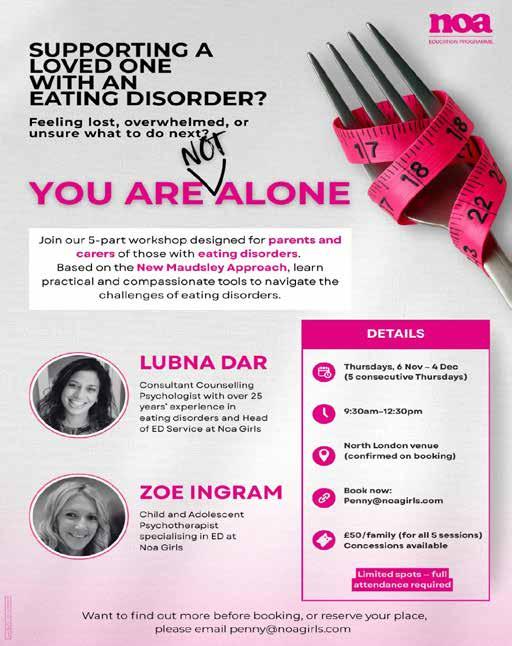



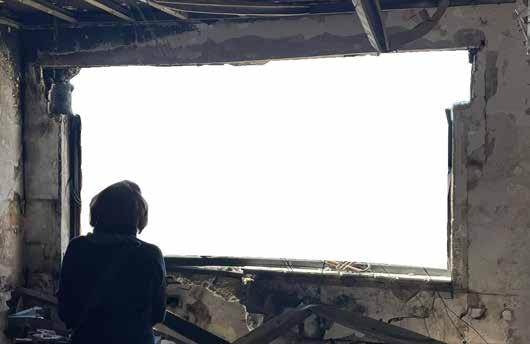
Over the Chagim, we are inspired by the example of those who, despite enduring unimaginable loss, have shown remarkable resilience and still found ways to express gratitude for the blessings in their lives.
Joseph Grenfell z’l was born in 1926 and was 13 years-old when World War II began. When the Germans invaded Hungary in 1944, Joseph was conscripted into a Jewish forced labour battalion at 17 years old.
“I said goodbye to my mother and father and sister. Unfortunately, that was the last I saw of my father.”
Joseph’s father was murdered and his wider family perished in the concentration camps whilst his mother and sister survived under Swiss diplomatic protection in Budapest.
“My battalion was sent to Bor in Serbia, where we worked to build the railway line. Out of 4,000 [sent to Bor], only about 250 survived. We were lucky,” said Joseph.

After the war, Joseph studied law in Budapest, attempting to fee when the Communists took over Hungary. He was imprisoned for a year and forbidden to practise law - on release he worked in factories.
In 1956 he took part in the uprising
against the Communist regime, before escaping to Vienna. He reached the UK at age 30. Tere, he began again. Joseph married, raised a family, and became a successful accountant.
When the Communist regime fell in Hungary in 1990, he returned to his old university in Budapest for a formal graduation – 40 years later. Joseph never forgot what he had endured, or the responsibility he felt to give back after surviving. For 28 years, he donated annually to Jewish Care and left a future gift in his Will.
Today, that legacy lives on through his son, who says, “I knew my parents supported Jewish Care and I was delighted to discover that this was a commitment for many years, I know they thought it had an important role in the community. My wife and I are pleased to continue that tradition by donating to Jewish Care ourselves.”
Sarit Simon, Jewish Care’s Legacy & Giving in Memory Lead, shares, “Joseph was incredible in his lifetime and beyond. He planned for the future and shared what was important to him with his family. We are incredibly grateful to Joseph for his generosity and for his kindness in choosing to leave a gift to Jewish Care in his Will ensuring our vital services will be there for others in the future.”
£1 in every £4 of the funds that Jewish Care raises comes from gifts in Wills. Tese gifts help to cover the costs of many of the charity’s services, that receive no government funding, including the Jewish Care Direct helpline, the Social Work and Community Support Team, the Family Carers Service, Meals on Wheels and Befriending, and all Jami’s mental health services.
Jewish Care has a partnership with the National Free Wills Network. Trough this partnership, you can make or update your Will with an experienced solicitor who will write a simple single or mirror Will for you. It’s easy, convenient, and free.
Many people who use the service choose to leave Jewish Care a Future Gift, but there is no obligation to do so. However, a gift of any size will help ensure that Jewish Care, together with Jami, can continue to deliver high-quality support to people and their families in the community who may need us for years to come.
To fnd out more about our Free Will Writing Service and Future Gifts visit jewishcare.org/futuregiving, contact Sarit on 020 8922 2819 or legacyteam@jcare.org

Jami, the mental health service for the Jewish community, recognises that mental illness and distress not only afect the person, but also their whole family. And, because the team at Jami, which is part of Jewish Care, understands the challenges that people caring for someone with mental health issues have, they are here to support them too.
When Aviva and her husband found out their son was self-harming and had suicidal thoughts, they were shocked, scared, confused and full of guilt. Finding
their world turned upside down, they turned to Jami for help.
Jess, one of Jami’s carer peer support workers, met them weekly to talk about how they were coping, how they could support their son, and how they could look after themselves.
As a carer peer support worker, Jess uses her own lived experience of caring for a loved one with mental illness and distress to support others.
Aviva explains, “My husband and I felt we were at the bottom of a very deep black hole, and we didn’t really know which way to turn. We felt terribly ashamed of ourselves and our parenting skills because we hadn’t recognised the pain our child was going through.
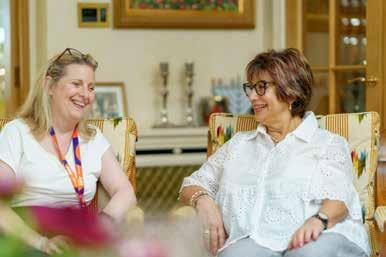
“Jami’s support helped us come to terms with what happened, to understand it wasn’t our fault, and to cope with looking after our son and
Since October 2023, UJIA has stood with the people of Israel, supporting communities in the north and south whose lives have been torn apart by war.
This Kol Nidre, we look to the future with hope and optimism. With your support, those hardest hit will have a chance not only to get back on track, but to exceed their incredible potential.
Please donate at ujia.org/kn25 or scan the QR code.
ourselves. Being able to talk to somebody about how we were feeling and how to deal with our son was wonderful.
“At that time, it was difcult having to pretend that everything was all right when we were out socialising with friends. And it was hugely stressful listening to them talking about how well their children were doing at university while wishing our son was in the same situation. We felt very isolated.
“But, as we learnt to open up in our sessions with Jess, we grew to become more open with others. She helped us to reframe the language we used with our son, encouraged us to be honest with our friends, and gave us the tools to cope.
“Receiving support from a Jewish organisation felt very comforting too, because we felt everyone understood our values and the way we had brought up our children. We now realise there was nothing we could have done to prevent how our son was feeling or why he was feeling that way, but he’s much improved now and has gone back to university.
“Recognising that we needed help too was the key to us being able to cope – not only with our son and his issues, but also with our own. I honestly don’t think we’d have been able to do that without Jami behind us.”
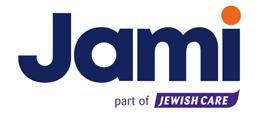
As Ellisa Estrin, Director of Fundraising and Marketing, says, “More than 55% of under-25s in our community are now afected by mental illness, distress or trauma. Yet, many carers are left to cope alone. Jami’s services provide understanding, strength and hope.
“However, we don’t receive any government funding to deliver these services and have to rely on voluntary contributions. Donations from the community will enable us to be here – for the carers, the cared for, and the countless others who need us. Tis Rosh Hashanah, please give generously to Jami, so that Jami can give life-changing support to others.”
Please donate to Jami’s Rosh Hashanah appeal by visiting jamiuk.org/ roshhashanah
If you need support or are supporting someone who needs help, visit jamiuk. org/get-support/ or call 020 8458 2223.







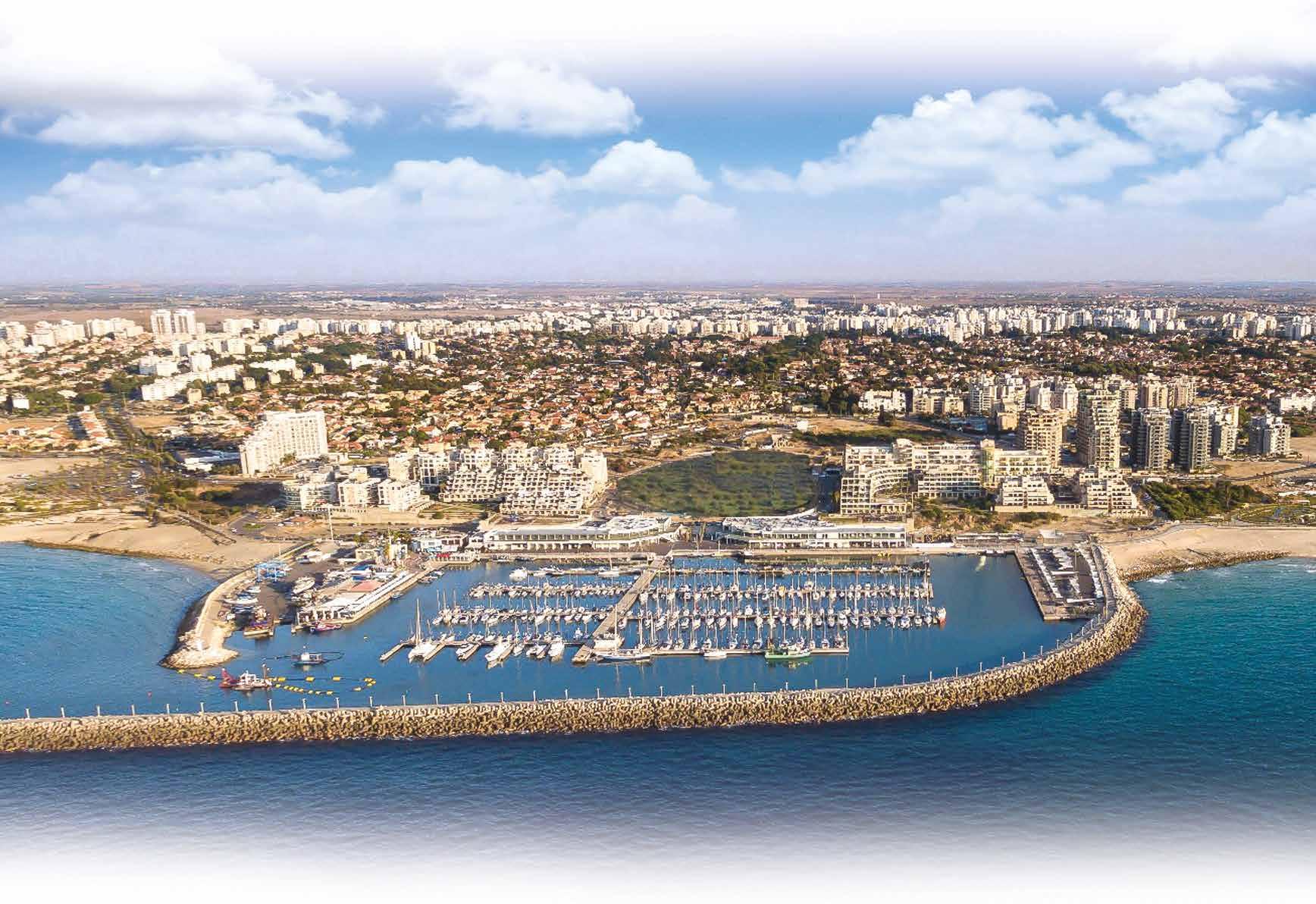




By Eleanor Compton
For many children, early life means love and security. For Michael, it meant fear. His father was violent, home unsafe, and school uninspiring. By 12, he was on the streets, hungry and alone, until police and social services brought him to Emunah’s Sarah Herzog Residential Home in Afula.
“Without Emunah, I’d have ended up in jail, or worse,” Michael recalls. “Tey gave me the tools to succeed and a reason to believe in myself.” For the frst time, he experienced stability and care. With therapy, structure, and supportive adults, he began to heal, return to school, and rebuild his future. He graduated, completed national service, and at 26, returned to
Emunah, not as a child in need, but as a houseparent and counsellor.
Now, Michael supports children facing the same struggles he once endured. To them, he is living proof that recovery is possible. “I never give up on these kids, just like Emunah never gave up on me,” he says.
Michael’s journey embodies Emunah’s mission; not only rescuing children in crisis but helping them grow into thriving adults who give back. Each year, Emunah ofers hundreds of children the chance to heal, rebuild, and dream again.
British Emunah Charity No. 215398 info@emunah.org.uk 0208 203 6066 www.emunah.org.uk
Right now, too many children need urgent help. Israel is facing its worstever mental health crisis. Wounds may heal but trauma lingers.
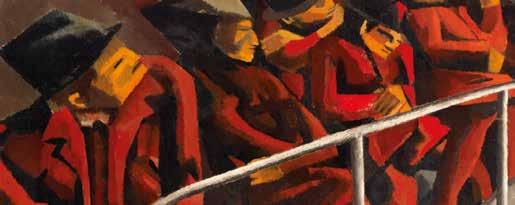
Ben Uri proudly represents the community within Britain’s mainstream museum sector. Benuri.org and Buru.org.uk are now Europe’s leading research portals on the Jewish, Refugee and wide Immigrant contribution to British visual culture since 1900.
80+ Online and 3D Exhibitions
100+ School and Family programmes
100+ Arts and Mental Health interventions
125+ Podcasts & interviews
250+ Films and artist insights
400+ Collection artist biographies
400+ Research papers, essays, catalogues and PhD theses
600+ Archive exhibitions records
900+ Collection artworks on benuricollection.org.uk
3300+ Reseach Unit profles on buru.org.uk / diaspora-artists.net
10,000 Pages of archives from 1915
Benuri.org & Buru.org.uk open 24/7 to suit you
Gallery exhibitions open every Wednesday to Friday at Boundary Road, London NW8.
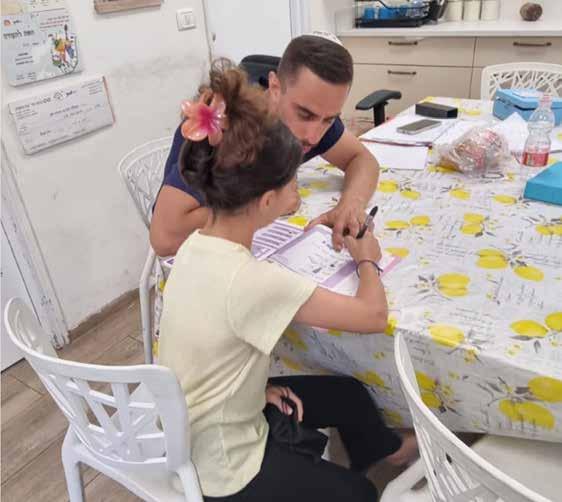
Professional trauma therapy
Long-term emotional support
Safe, loving residential homes
A path toward healing and hope
One of the many consequences of the post-October 7 period in Israel has been an upsurge in domestic violence.
Te stress of military service and bomb attacks on Israeli cities have sadly exacerbated fraught relationships.
WIZO’s Safety Net programme has long supported those impacted by abuse, and in a post October 7 world it has had to meet the increased demand for legal, fnancial and practical help.
Since October 7 Safety Net has already assisted around 160 women and a similar number of children across 10 communities.
WIZO Centres provide direct support to women and their children who have escaped a violent home environment. We help them to rebuild their lives and that often starts with a prolonged period in a shelter.
During their rehabilitation, the women are supported while they address both practical and emotional issues from poverty, unemployment, alienation, and in some cases an absence of family support.
Over the past eight years, the Safety Net programme has proved a hugely efective resource for integrating domestic violence survivors back into the community to enjoy safe, sustainable and independent lives.
Te communities are operated by professional staf and volunteers at WIZO
branches. In addition to ofering emotional support, the women are helped to acquire the skills and training needed to achieve fnancial independence. Parenting workshops also help to empower them as mothers.
One mother of three who participated in the programme described it as life-changing.
“From the frst call and the frst meeting, I felt truly embraced. I had support, like parents backing me up.”
Safety Net incorporates weekly support groups and professional counselling sessions. Participants are also made aware of fnancial and legal resources so they can claim housing assistance and other government benefts.
Tey are guided through divorce proceedings and custody battles and are even helped with setting up bank accounts and other life essentials.
Women can also take advantage of training and certifcation courses and guidance on job applications and
interviews. Safety Net has also worked hard to build relationships with a network of employers.
WIZO knows that the hands-on assistance means women can rebuild their sense of self-worth, confdence and parental competence.
Safety Net is more than a programme. It’s a community stafed by a network of caring individuals, some professional, some WIZO-trained volunteers, who are all dedicated to supporting these families as they rebuild their lives.
Te success of Safety Net can be gauged by one startling statistic. Research suggests that up to 40 per cent of abused
women return to their violent partners or end up in new and harmful relationships as independence depends on resources and support that most do not have access to. For those who have come through Safety Net, the rate of return is below 5 per cent.
It is testament to the way that, for more than a century, WIZO has been a pioneer in identifying critical needs in Israeli society and developing cutting-edge social and educational services to address them.
To learn more please visit www.wizouk. org.
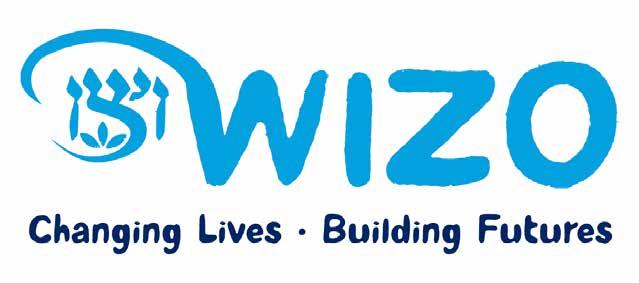
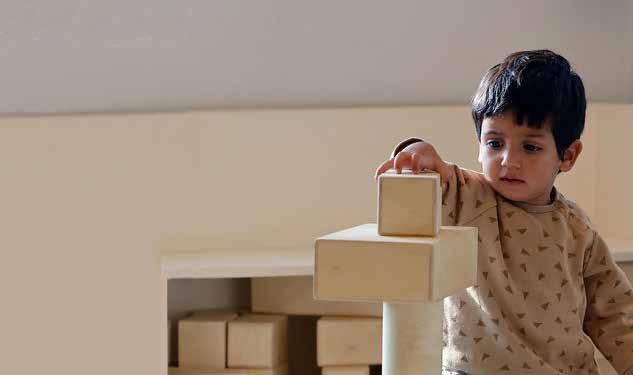
We remember the lives stolen, the families torn apart and the trauma carried by survivors. We continue to pray for the safe and immediate release of the hostages.
In WIZO centres across Israel, children are still learning to smile again, women are rebuilding their lives, and families are seeking safety. Each day is a step from grief towards resilience, from despair towards dignity.
Your support ensures that memory becomes action. By helping WIZO rebuild shelters, strengthen centres, & provide vital care, you not only honour the past you protect the future.





Camp Simcha is the Jewish community’s charity for families with a seriously ill child. We are a lifeline, providing love, hope and unconditional, bespoke practical and therapeutic support at the darkest of times.
Please help us to continue to be there for EVERY family who needs us.

PLEASE HELP US THIS ROSH HASHANAH
Visit campsimcha.org.uk/rh25 or scan the QR code to donate
Camp Simcha, Amélie House, 221 Golders Green Road, London, NW11 9DQ 020 8202 9297 (London) • 0161 341 0589 (Manchester) ofice@campsimcha.org.uk • campsimcha.org.uk • Charity Number: 1180646

Sir Moses Montefore, the 19th century Jewish international diplomat and philanthropist, was once asked how much he was worth. Te wealthy man thought for a while and named a fgure. Te other replied: “Tat can’t be right. By my calculation you must be worth many times that amount.”
Moses Montefore’s reply was this: “You didn’t ask me how much I own. You asked me how much I’m worth. So, I calculated the amount I have given to charity this year and that is the fgure I gave you. You see,” he said, “we are worth what we are willing to share with others.”
Whatever the cause, Jewish or otherwise, Jews have always ‘punched above their weight’ when called upon to meet the challenge of charitable giving. Perhaps it is because the concept of tzedakah goes far beyond the English word ‘charity’ as it is usually translated. It is derived from the Hebrew word tzedek meaning righteousness, justice, or fairness. For Jews, giving to people in need is an act of justice and righteousness, the performance of a duty.
Jews around the world have always responded disproportionately to the challenge of providing fnancial support and infrastructure needed to sustain Jewish life, whether through the moral obligation on a minority to
support their community or the psychological bond that ties the Diaspora Jews to the State of Israel and its people.
Charity should be as much about making a personal investment in a project as making a fnancial one, which will lead to charities forging deeper, more enduring connections with their supporters, resulting in a more fruitful and benefcial outcome for both. Charitable legacies are the best way of leaving one’s footprint on the future and making a diference to the causes that strike a chord in the hearts and minds of those who give.
As Director of Legacies at Britain’s oldest Israel charity, JNF UK, I am privileged to meet members of the community who share this commitment to making their mark on the future by leaving a legacy to Israel in their Will. I am inspired by the selfessness and generosity of spirit I encounter in the course of my work. For over 70 years, JNF UK’s legacy department has provided
Will writing and estate administration services to those leaving a legacy to Israel through the charity.
Since the atrocities of October 7th and the conficts that followed, JNF UK has been supporting communities across both the north and south of Israel. JNF UK provided emergency aid to devastated kibbutzim, restored thousands of bomb shelters and supported the most vulnerable people, including Holocaust survivors and children. JNF UK’s work continues today through respite and mental health support for survivors of the Nova Festival and families living with trauma. JNF UK is also working with communities to identify the most efective way to begin rebuilding their homes and their lives, enhancing and upgrading essential facilities that restore a sense of belonging, cohesion, and hope for the future.
Alongside this, JNF UK continues its core mission: strengthening Israel and its people
through long-term investment in education, welfare, culture and infrastructure, particularly in the Negev and Galilee. Tanks to the generosity of those who leave legacies in their Wills, JNF UK can respond swiftly in times of need while continuing to build a stronger, more resilient Israel for the future. Te task of rebuilding devastated communities is vast, but JNF UK will see it through. With the help of their dedicated supporters, JNF UK will continue to help Israel meet today’s challenges, as has been the practice for over 120 years.
Carolyn Addleman is Director of Legacies at KKL Executor & Trustee Company (a subsidiary of JNF UK) and can be contacted on 020 8732 6121 or at carolyn@ kkl.org.uk


In June, an Iranian missile strike devastated Soroka Medical Centre in Be’er Sheva — the only major hospital for over one million people in Israel’s South. Entire wards were destroyed, operating theatres damaged, and hundreds of beds lost. Today, Soroka is operating at just 75% capacity. Patients are treated in corridors and temporary spaces without proper facilities.
JNF UK is working with Soroka to rebuild its wards, replace vital equipment, and return life-saving capacity to the people of the Negev.


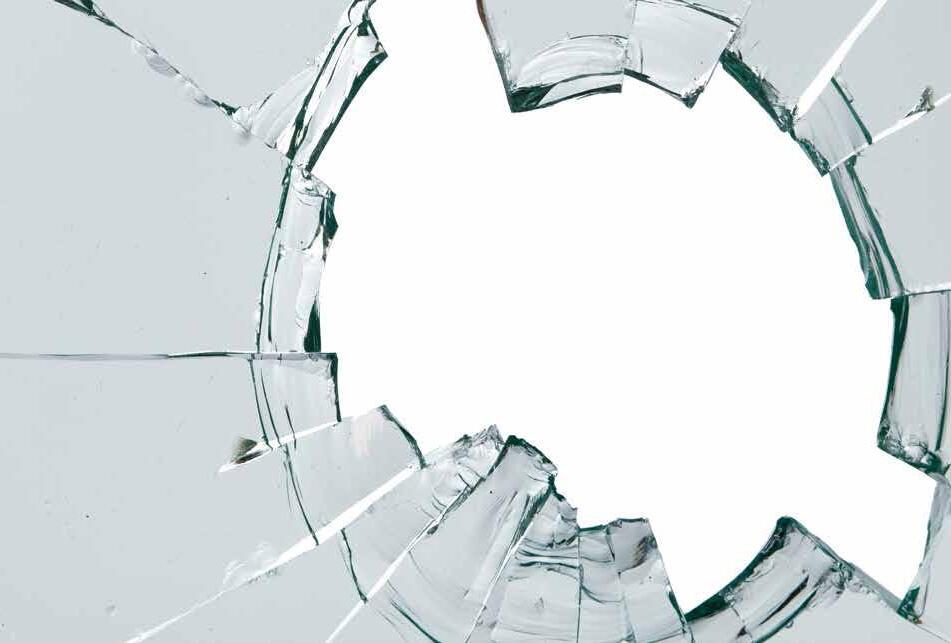

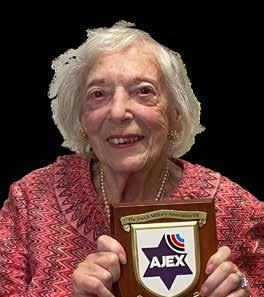
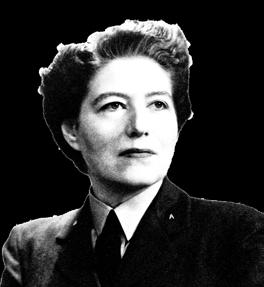


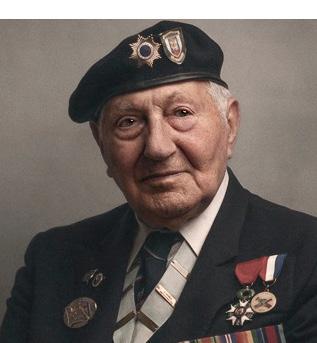









In the world of emergency medicine, seconds can be the diference between life and death. Te faster you respond, the less time there is for damage to occur. For United Hatzalah of Israel, responding quickly equals more lives saved.
Twenty years ago, Eli Beer, founder of United Hatzalah of Israel, watched in horror as food deliveries arrived at speed, while emergency ambulances were stuck in trafc. Lives hung in the balance, while hungry families ate steaming pizza from the kitchen several miles away.
Watching this scenario time and again led Eli Beer to, with a group of friends, develop a new concept for lifesaving, one which relies on trained medics in the immediate vicinity who can initiate medical treatment in those frst minutes. With only four minutes before permanent brain damage begins, this response time is crucial.
Now, United Hatzalah has an incredible 8,000 community-based, trained and certifed volunteer medics in its country-wide network. On average, they respond to emergency calls in three minutes or less across Israel.
Te impact of this speed of response has never more visible than over the past two years. In the words of volunteer medic Adir Nahmani, the last year has brought “the very nightmare scenario we hoped would never materialise”.
Israelis and the diaspora spent
countless hours glued to their phones waiting for “we are safe” messages from family and friends. And for those in danger zones, the situation has never been scarier.
Tis is where United Hatzalah medics truly shone. Tose in the immediate vicinity ran towards danger, looking for those in medical need, as everyone around them headed for the safety of shelters.
Treating the wounded was exceptionally challenging amongst the rubble but what helped United Hatzalah to deliver its lifesaving work was having medical equipment designed to deliver medical treatment in challenging physical circumstances.
Bulletproof vests and helmets protected the volunteer medics, giving them physical personal protection so they could focus on patients around them. Lightweight tactical stretchers allowed volunteers to carry patients out of debris-flled areas quickly and safely, where a solid “normal” stretcher may not be practical. Compact trauma kits allowed volunteer medics to navigate small and unstable spaces, without large medical kit bags while still carrying key items needed to address trauma injuries.
United Hatzalah also took
advantage of its technological expertise, using aerial drones to navigate structurally compromised buildings and rubble to locate injured individuals and understand access and extraction routes.
Alongside providing physical treatment, United Hatzalah volunteers also played a vital role in providing psychological frst aid at the scene of rocket attacks and in high-stress environments. Bringing therapy dogs alongside trained
Psychotrauma responders, the organisation worked to reduce anxiety and emotional shock in the moment, reducing the risk of long-term trauma.
United Hatzalah’s response to medical emergencies and disaster scenarios is ever evolving but at its heart lies one simple fact: fast response minimises long term impact, saving more lives. It is only thanks to your support that this work is possible.
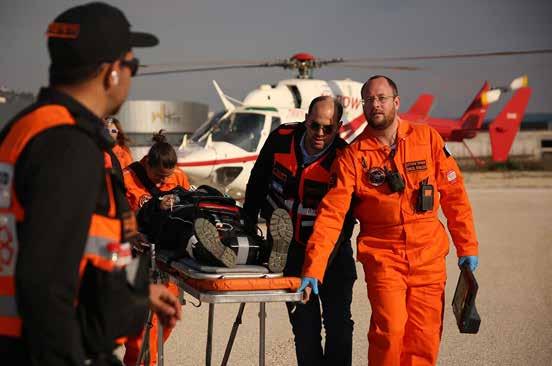
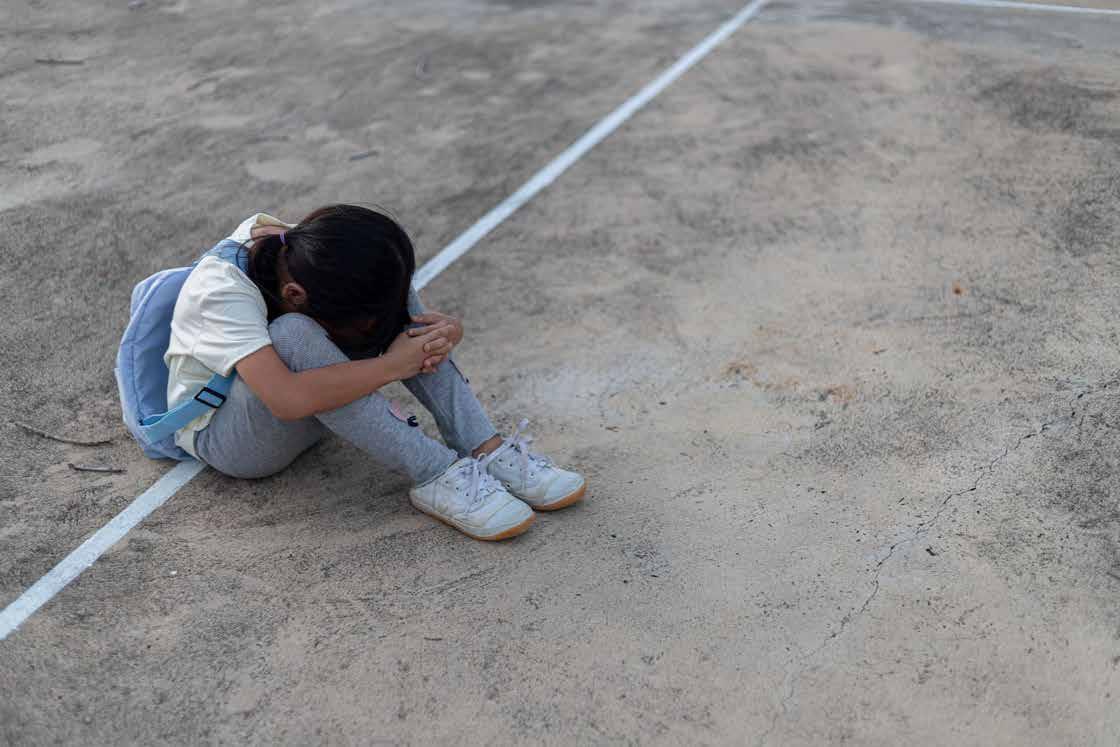
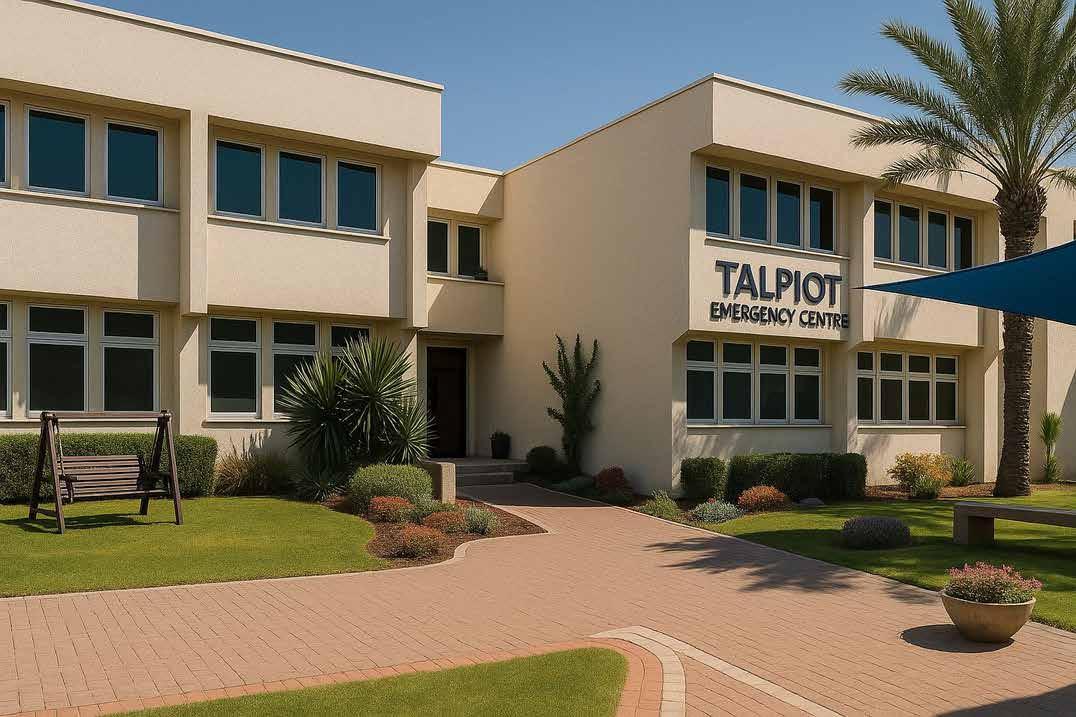





Located in pastoral surroundings Built with quality Finished with elegance Complete with luxury facilities








































Half the project is already sold. Don’t miss this unique opportunity. Construction is in full swing & the majestic towers are already reshaping the RBS Skyline
For more than fve decades, Jewish Blind & Disabled (JBD) has been a lifeline for Jewish people living with physical disabilities or vision impairments. Established in 1969 by Cecil Rosen, the charity was born out of a vision to provide safe, accessible housing and support for those in need. Today, 55 years later, JBD faces the most signifcant challenge in its history - a surge in demand that far exceeds its current capacity.
Te landscape has changed dramatically since JBD’s inception. What began as a relatively small pilot scheme has evolved into a vital service, transforming the lives of hundreds of people each year through independent living and tailored support. Recent years have brought a range of pressures including the Covid pandemic
which exposed the vulnerability of many individuals living alone, highlighting the urgent need for accessible housing and round-the-clock support.
At the same time, delays in local authority assistance, the rise in age-related disabilities, and the increasing number of people living in unsuitable private rented accommodation have all contributed to a waiting list larger than ever before.
JBD has seen a dramatic increase in applications from people living in homes that no longer meet their needs. Some applicants have been discharged from hospital into care homes because their previous residences were inaccessible. Others have come directly from NHS rehabilitation centres following strokes or amputations, unable to return to environments that no longer support their independence. Many live in social housing where the only exit is via stairs they can no longer manage. In some boroughs, the wait for accessible housing

Jewish Blind & Disabled provides housing and support for adults with physical disabilities or vision impairments. Our services help individuals live independently, whether in one of our developments or in the community.
With increasing demand, your support is vital to ensure we can help everyone who needs our support.

through local authorities stretches over a decade. For these individuals and many others for diferent reasons, JBD is often the only hope.
JBD has ambitious plans to expand its reach; to grow and develop to meet this increased demand. In the next few months, the charity will welcome tenants to Ephraim Court, a newly built development in Mill Hill East ofering 30 state-ofthe-art accessible apartments. Tis marks a signifcant step forward, but it is only part of the solution.
Just two miles away in East Finchley stands Fairacres, JBD’s oldest development. In January 2025, planning permission was secured to redevelop the building, enlarging all fats to meet wheelchair accessibility standards, adding 11 new apartments, and transforming the site into a modern, sustainable home. Tis project, however, is contingent on securing the necessary funding.
Alongside its housing initiatives, JBD continues to expand its community-based services. Tese include the Independent Living Advisory Service, which ofers guidance from occupational therapists to individuals living in their own homes, and peer-led support groups for those with sight loss. Te charity also runs JEMS (in partnership with Jewish Care), a group for people afected by
Multiple Sclerosis. Tese services are designed to empower individuals, reduce isolation, and provide practical solutions for everyday challenges.
Despite these eforts, demand remains at an all-time high. Te waiting list is currently at 130 households. JBD is committed to ensuring that every Jewish person with a physical disability or vision impairment has access to the housing and support they need in order to be able to live independently.
Tis commitment is only possible thanks to the generosity of the community. For over 55 years, JBD has been sustained by donations from individuals, families, trusts, and foundations. Now, more than ever, that support is needed. Te charity is calling on new and existing supporters to help realise its ambitious goals and meet the growing demand.
As Chief Executive Lisa Wimborne puts it, “We are not an organisation to rest on our laurels. Our benefciaries and the people on our housing waiting list drive us to do all we can to grow and develop.”
Jewish Blind & Disabled is determined to rise to this challenge. With continued support, it can ensure that no one is left behind. Together, we can transform lives. For more information or to donate, visit www.jbd.org or call 020 8371 6611.
Charity number: 259480



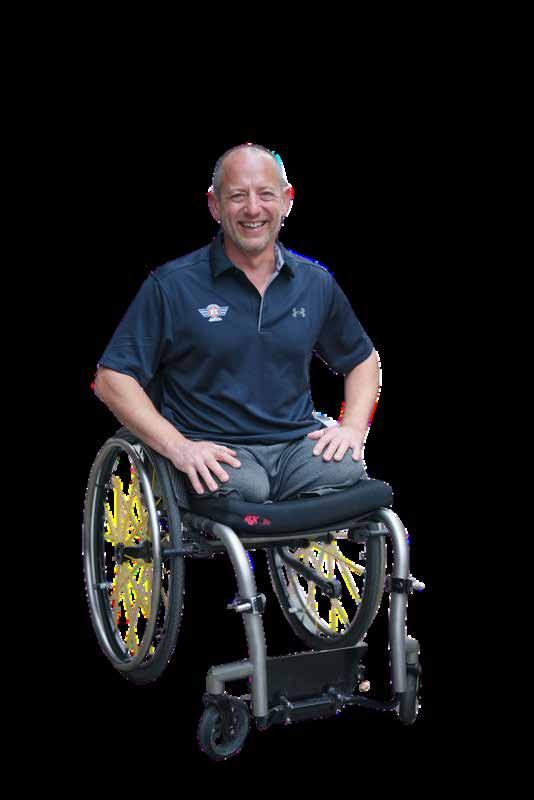











For many, the dream of making Aliyah is one of the most exciting — and daunting — journeys of their lives. It’s not just about moving to a new country; it’s about starting a whole new chapter flled with opportunity, community, and purpose. But anyone who has even begun to explore the process knows that Aliyah comes with countless questions and challenges:
• Where is the right community for me and my family?
• How do I navigate the healthcare system?
• What about taxes, fnancial planning, pensions, and insurance?
• How can I ensure my children thrive in school and socially? Tis is where I come in.
With over 15 years of hands-on experience in the world of Aliyah, I’ve already helped thousands of Olim turn their dream into reality. Today, as an Independent Aliyah Consultant, I ofer something truly unique: a FREE VIP one-stop shop for anyone planning their move. Yes, you read that correctly. Free.
Why work with me?
Because I am the only person who can bring together a dedicated team of English-speaking service providers across every area of life in Israel. Together, we remove the guesswork, stress, and
frustration from the process and instead give you clarity, confdence, and support at every stage. My team covers everything you’ll need for a successful Aliyah:
• Communities – insider knowledge to help you choose where to live, from bustling cities to warm-knit smaller towns.
• Healthcare – guidance on navigating Israel’s healthcare system, ensuring you get the right coverage from day one.
• Tax & Financial Planning –expert advice to maximize your Aliyah benefts, handle pensions, investments, and minimize surprises.
• Education – insights into schools and frameworks to ensure your children feel at home.
• And everything in between –whether it’s shipping, real estate, employment, or cultural integration, we’ve got you covered.
Experience matters
Making Aliyah isn’t just about flling in paperwork — it’s about building a new life. With my background of working directly with thousands of families and individuals, I’ve seen it all. From retirees moving for a quieter life and protecting their fnances, to young professionals looking a brighter future, to families
Y O U R N E X T

searching for the perfect blend of community and career growth — I know the questions you’ll ask, the challenges you’ll face, and the solutions that really work. And because I work independently —I’m not tied to any single organization or agenda — my only priority is you.
A personal journey, with professional support
Every Oleh (new immigrant) has their own story, their own needs, and their own dreams. Tat’s why I don’t believe in one-size-fts-all advice. Instead, I take the time to understand your situation, connect you with the right professionals, and map out a clear, step-by-step plan for success.
Tink of me as your personal guide — someone who has walked this path with thousands before you, and who can anticipate what’s ahead. With me and my team, you’re not just “moving to Israel.” You’re building a thriving, sustainable life there.
wait?
Aliyah is a big decision — but it doesn’t need to be a complicated one. With the right guidance, every challenge can be turned into an opportunity. Tousands have already taken this journey with my help, and today they are living their dream in Israel.
So I’ll ask you this: what are you waiting for?
If you’re even considering Aliyah, let’s talk. Whether you’re six months, two years, or even a little longer from making the move, now is the time to start planning. After all us Brits love to plan!!! Te earlier you prepare, the smoother your transition will be.
And best of all — my help costs you nothing. Truly nothing. You gain access to my network, my expertise, and my dedicated team of professionals — all without paying a penny.
Because Aliyah is too important to leave to chance.
Take the next step today
Your dream of living in Israel is closer than you think. Let me help you make it happen.
Reach out today and let’s begin the journey together.
Dov Newmark — Independent Aliyah Consultant
Helping you build your new life in Israel, every step of the way.
dov@makealiyaheasy.com www. makealiyaheasy.com 020-8150-2245

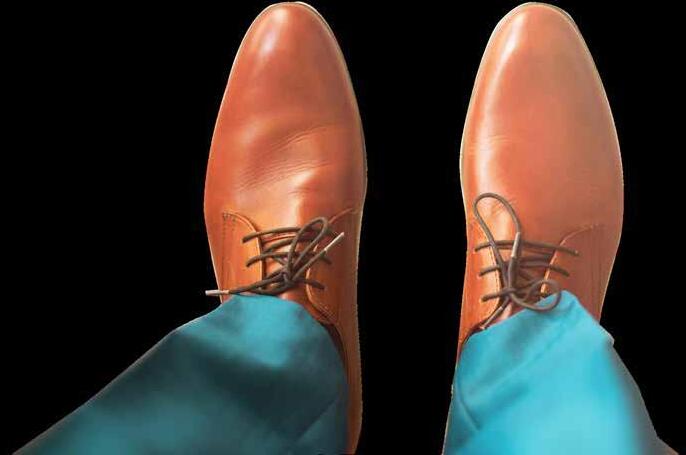
and disheartened by

When I spoke with Mayor Rubik Danilovich this summer, his words carried both grief and determination. On 19 June 2025, Be’er Sheva—his home city and Israel’s southern capital—was struck by an Iranian ballistic missile. Entire neighbourhoods were torn apart, buildings set ablaze, and families forced to fee with nothing.
Among the hardest-hit was Soroka Medical Centre—the beating heart of healthcare in the Negev. As the only major hospital in Israel’s south, Soroka serves more than one million residents.
Negev. Be’er Sheva is the city of Abraham, with more than 3,700 years of history. We are a small yet vital link in the magnifcent chain of the Jewish people.”
Home to residents from over 81 countries, Be’er Sheva is a vibrant centre of diversity, innovation, and growth. “Be’er Sheva represents the great opportunity of the Negev,” he continues. “Tis is the new Israeli dream. Despite challenges, we have built an ecosystem of technology, research, and culture that is shaping Israel’s future. Te city is now in its golden era.”

Te strike destroyed buildings, wiped out nearly half of the hospital’s 1,192 beds, and forced departments into overcrowded underground spaces. Rehabilitation services had to be relocated of campus entirely.
Te toll was devastating: four residents killed, dozens injured, 670 families evacuated, and more than 100 buildings damaged. Yet, from the very frst moments, Be’er Sheva responded with courage and solidarity. JNF UK was proud to be among the frst organisations to act.
Tis Rosh Hashanah, JNF UK has launched an urgent appeal to help restore Soroka Medical Centre, ensuring it can continue to save lives and protect Israel’s South.
“Be’er Sheva is my family”
“I was born, raised, and educated in this city,” begins Mayor Danilovich. “At 27, I had the privilege of serving as Deputy Mayor for a decade. In 2008, I was elected Mayor, and for the past 17 years I have had the honour of leading Be’er Sheva.
“I see myself as a messenger of the State of Israel in the
But that golden era was violently interrupted.
“Indescribable human pain”
On the morning of the ceasefre in June, the Mayor was just 800 metres from the site of the direct hit. “I arrived at the scene within minutes and was confronted with harrowing sights: massive destruction, burning vehicles, collapsed buildings, and above all—indescribable human pain.
“Four of our residents were murdered, dozens injured, families lost their entire world. Around 670 families were evacuated from their homes. Te grief was overwhelming. Tat day, people told me my face looked sad on television—and how could it be otherwise?
“And yet, amidst all this, there was strength. Volunteers, emergency teams, neighbours—all worked shoulder to shoulder. Families who had lost everything still stood tall. Tey tried to harm the body, but instead strengthened the soul. Tat is the victory of Be’er
Sheva’s spirit.”
Soroka: Te lifeline of the South
Soroka Medical Centre remains the city’s greatest concern. “Te damage is estimated at hundreds of millions of shekels,” says the Mayor. “We now have 40% fewer inpatient beds and 30% fewer operating rooms. Internal medicine wards have been forced underground. Te rehabilitation unit was destroyed and had to move of-campus.
“Tis is the only hospital in the Negev, serving more than one million residents. If Soroka is not immediately repaired, rebuilt, and upgraded, the health of the region is at risk. Winter is coming, bringing fu and infectious diseases, and Soroka simply cannot cope.
Sheva is also part of a much longer story. For decades, our charity has been a close friend and partner of the city and the
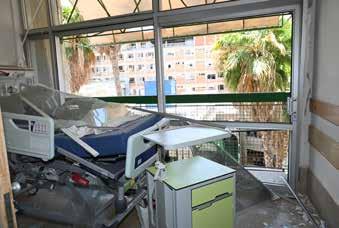
“Tis is more than a hospital—it is a frontline institution of resilience. Tey deliberately targeted it to break us. Rebuilding Soroka stronger and better will be our victory.”
Psychological and emotional support
Beyond the physical destruction, the human toll weighed heavily. “Our priority was not only to save lives, but to support residents emotionally and psychologically,” Danilovich explains. “Near every impact site, we opened family information centres that provided immediate counselling and support. Within hours, dedicated WhatsApp groups were created to give residents reliable information and guidance. MATAN, our mental health support hotline, was activated for the whole city.
“People had fed their homes in pyjamas, with babies in their arms, without phones or wallets. Our mission was to ensure that no one was left alone.”
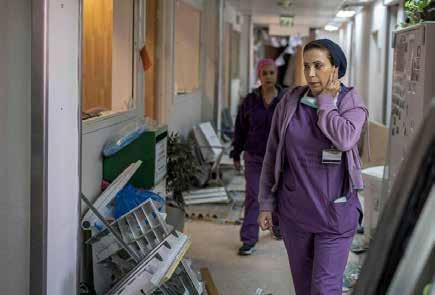
Te Mayor is candid about the importance of international support: “Tis was the hardest event our city has ever experienced. It would not have been possible to cope without our partners.
“JNF UK was among the very frst to act—not only with words, but with deeds. Teir support was a gesture of values, courage, and genuine solidarity with Be’er Sheva. Alongside them, Jewish communities around the world mobilised to strengthen us. Tey chose to bind their destiny with ours, and that is never taken for granted.”
JNF UK’s involvement in Be’er
wider Negev region—helping to build infrastructure, supporting education, and investing in community projects to ensure that the South fourishes. Tat long-standing commitment made our swift action in June not only a gesture of emergency relief, but a continuation of a partnership rooted in shared values and responsibility.
“Tis is our defning moment”
Asked what message he wants to send to the global Jewish community, the Mayor’s answer is clear:
“Tis is our defning moment. If Soroka is rebuilt quickly, that will be our victory—the victory of Zionism over our enemies. Tey deliberately fred a missile into a hospital to cripple us. Our response must be to build it stronger than ever.”
“Our partners in the UK and worldwide have always stood with us, in joy and in crisis. Now, we need your help to save Soroka—for our residents and for the future of the Negev. Am Yisrael Chai—the people of Israel live.”
Mayor Danilovich’s message is one of resilience—but also of urgency. Soroka Medical Centre is the lifeline of Israel’s south, and it is in crisis. At JNF UK, we feel both the weight of responsibility and the strength of our partnership with Be’er Sheva. For decades, we have stood with the Negev. Today, that bond matters more than ever.
Tis Rosh Hashanah, I ask you to stand with us and help restore Soroka—so that together, we can turn devastation into renewal, and ensure the people of the South have the care and dignity they deserve.
Please donate today: www.jnf.co.uk/ RH25
Elan Gorji is the Chief Executive O fcer of JNF UK.
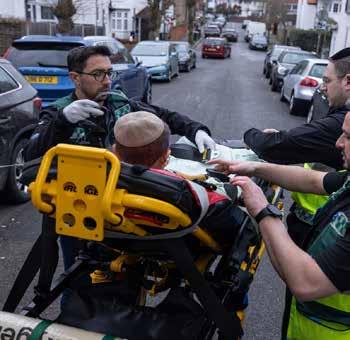







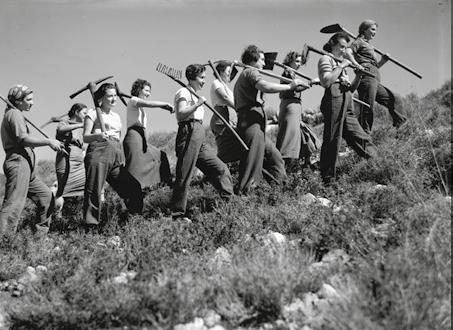
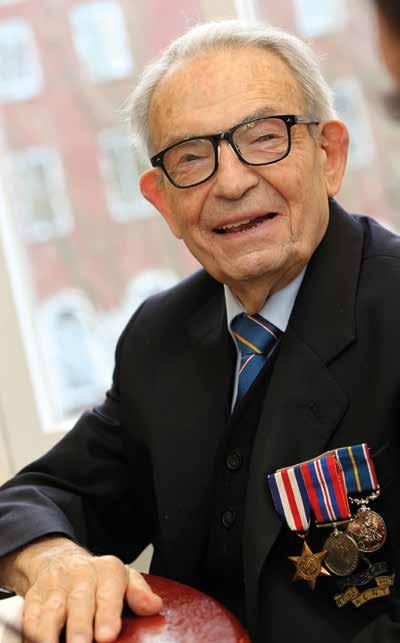




Most of us were (say it quietly) rather relieved to wave our children of on the frst day of school. Te summer weeks can bring many joys, but most parents will agree they can be challenging, hectic a constant call on the wallet, and particularly for working parents, a difcult tiring juggling act. Te return to routine has been welcome providing structure and stability to the whole family. However, for a growing number of parents, the return to school period is fraught with stress, overwhelming emotion and confict where getting kids to school feels almost impossible.
Persistent absence, emotional based school avoidance or school refusal is a growing and serious issue. It can have profound negative impact on the child as well as repercussions such as loss of ability to work for a parent. School refusal can happen due to a catalogue of reasons. Learning difculties or an academic lag due to persistent absence may make school an uncomfortable place to be. Bullying, whether in person or cyberbullying can make school feel unsafe. Anxiety in its diferent forms, depression and other mood disorders can create refusal or inability to attend and neurodiverse children may struggle to thrive in a school environment.
Both anecdotal evidence and statistics show that, like many things, since Covid, the issue of persistent school absences has grown far worse. In the latest school year, 19.5% of children in state primaries, and 27.8% in state secondaries — a total of 1.6 million children – were marked persistently absent (missing 10 per cent of classes). Amongst other reasons, Covid introduced the concept that school was not really compulsory. Many individuals already sufering in school, struggled to reintegrate to in-person teaching. One interesting point to consider is that with the increase of working from home, the incentive for parents to fght battles in the morning to get their kids out the door has reduced as the, ‘you need to get out so I can get out’ stress has gone, leading to cycles of absence. Tis may be a win against the temptation to squirt Calpol at a child just before school rota and then act appropriately surprised by a call from the school four hours later (obviously I only speak from friends’ experiences) but it can set a dangerous precedent for children whose stomach-aches or headaches are more symptomatic of school resistance.
As a parent, it is really difcult to know what to do in the face of persistent school refusal. It can feel scary and isolating and we can feel a lot of judgment. We instinctively know that our children need to engage in the world and receive educa-

tion. We also know that school refusal can become self-perpetuating. Te longer children are out of school the harder, academically, but also mentally and socially, it can be to re-engage. However, in today’s climate there is an ever-looming unsaid fear of what may happen if we force a child to school when they feel unsafe or severely unhappy. When a child’s mental health and emotional well-being is in the balance, parents can feel like they are standing on a dangerous precipice.
Schools are under pressure to reduce school refusal and improve attendance fgures, but they aren’t receiving any additional resources to tackle this efectively. Schools are already overstretched between increased academic pressures, increased mental health needs, tighter budgets, increased cost of living both afecting school expenses and the ability for parents to contribute to fees. Expecting schools to respond efectively to this challenge and accommodate additional needs which may be useful to avoid full school exclusion without extra support is like asking someone to put out a wildfre with water guns.
Our community is extremely privileged to have initiatives and incredible organisations like Gateways for out of school provision. Tis is undoubtedly life changing for some children and their families. However, in the face of over a quarter of high school students persistently absent, we need some community-led solutions alongside this for those students where, with the right provision, school inclusion is a possibility. In doing so, we will free up communal resources for those who need it most, whilst redirecting challenging behaviours before they spiral. Te benefts of preventing full school exclusion have been recognised and prioritised by many national institutions and organisations. At Noa, we have seen both the rise of school refusal and the long-term difculties it presents. Tat is why, with the generosity of John Lyon’s Charity, one of the forward thinking organisations proactively seeking to tackle this issue, we have launched our in-school inclusion programme to empower those with emotionally based school avoidance to maintain and build their school attendance and ultimately their academic success. Alongside providing practical and emotional tools to those who are, or are at risk of becoming, school refusers, we are working with schools and parent bodies to educate, support, skill up staf and tackle, what has become a silent pandemic in our schools. Methods such as reduced timetables, emotional support, alternative learning levels and settings, safe spaces can all be employed, with help, to encourage school inclusion and engagement.

We believe that a more targeted and united response to school refusal by working both with adolescents at risk and the environments and support systems they are in, will yield positive responses, reducing school exclusion and, in doing so, rewriting the narrative for so many students who struggle and the community as a whole.



C H A G S A M E A C H

N E T A N Y A
O v e r 2 0 0 S Q M d u p l e x
5 B e d r o o m s
3 B a t h r o o m s
2 P a r k i n g s & S t o r a g e
P o o l & G y m i n b u i l d i n g
F u l l y f u r n i s h e d
Asking Price:
₪ 8 . 5 M / £ 1 . 9 1 M

E F R A T
Z a y i t
O v e r 4 0 0 S Q M
1 0 B e d r o o m s
E x c e l l e n t c o n d i t i o n
G r e a t c o m m u n i t y
R e a d y t o m o v e i n
Asking Price:
₪ 9 . 7 M / £ 2 . 1 8 M

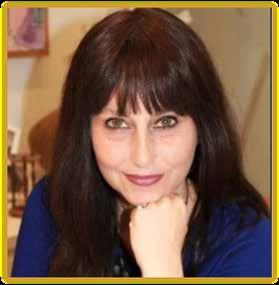

J E R U S A L E M
G e r m a n C o l o n y H a r a k e v e t S t r e e t
1 5 0 S Q M d u p l e x p e n t h o u s e
3 L a r g e b e d r o o m s
2 L a r g e s u k k a h b a l c o n i e s P r i m e l o c a t i o n
Asking Price: ₪ 1 0 . 9 M / £ 2 . 4 5 M


0 0 S Q M
R e n o v a t e d
3 B e d r o o m s
2 b a t h r o o m s
A c r o s s f r o m Y a r m u t p a r k
Asking Price: ₪ 2 . 8 5 M / £ 6 4 0 K

C A R M E I G A T
P r e s a l e
F a s t e s t g r o w i n g a n g l o
c o m m u n i t y i n I s r a e l
O v e r 4 0 0 u n i t s a v a i l a b l e
2 , 3 , 4 & 5 b e d r o o m s a v a i l a b l e
P r i c e u p o n R e q u e s t



As the New Year begins, the word teshuvah is on everyone’s lips. Too often it is translated mechanically as repentance. Penitence means sorrow. Te prefx “re” literally means to repeat, so repentance carries the connotation of being in a never-ending cycle of sorrow and regret.
But that is precisely what teshuvah is not.
Te word teshuvah comes from the Hebrew word lashuv – to return. It is not about remaining in pain, but about returning to one’s true self.
But who am I, at my core?
I am not just a body, pulled by instinct, survival, and self. I am a soul, a spark of the Divine. And the nature of the soul is to give. Just as God creates out of abundance, not lack, so too we are most ourselves when we live as Givers.
Becoming a Giver is not about theory. It must land in practice. Te High holy days guide us through this journey - beginning with a shift in the mind, moving into speech, into the heart, fowing into our actions, and fnally becoming second nature.
Rosh Hashanah begins in the head. Te word Rosh itself literally means head. It starts with a change in mindset and a new way of thinking.
Yom Kippur brings us to speech. In the
vidui confessional, we speak the truth out loud, because words shape the heart. Ten we consistently point to the heart, acknowledging where we have missed the mark.
Sukkot moves into the hands. We grasp the lulav and etrog, physically acting out our new orientation.
And on Simchat Torah we dance with our feet. Te Hebrew word for habit, raglayim, comes from regel, foot. We embody our new self until it is ingrained in our every step.
Tis is the arc of the season: thought, speech, heart, action, habit. A return to the soul expressed through every part of our being.
“we.” Be aware of where it comes from. 2. Hear the voices inside. Tese are the private conversations of thought – the animal voice says “me,” the spark of Godliness says “we.” Choose to identify with the soul and align your thinking with it.

To give this idea substance, here are ten suggested steps, arranged to follow that same journey:
Head
1. Understand that no thought is neutral. Each one bends towards “me” or
3. Bring speech into awareness. Unlike the inner voices of thought, speech is expressed aloud. Ask: am I speaking in the language of rights or in the language of duties? Words spoken shape relationships and reveal whether I am turned inward to “me” or outward to “we.”
4. Choose words carefully. Te language you use shapes the way you think and feel. Speak in words that nurture a giving mindset rather than a taking one.
5. Tink of three things to be grateful for each day. Rav Dessler teaches that
the root character trait of gratitude fows from a giving mindset.
6. After recognising a need, use the power of imagination to place yourself in the other person’s shoes. By picturing their world and feeling what they feel, you awaken empathy that in turn motivates you to respond with giving.
7. To motivate yourself to act, focus on the gains you will get in giving. Even if not yet purely altruistic, this can provide the push needed to step into action.
8. We are a people of action. Go beyond your comfort zone and begin with small, concrete acts of giving.
9. Use speech to commit yourself to action. Once you say it aloud – for example, “I will volunteer next Wednesday” – you are compelled to follow through.
10. Rambam teaches that many small actions shape a generous personality more deeply than one large act. By repeating small deeds again and again, giving becomes who you are.
May this year be one where the changes we begin in the head reach the heart, shape our actions, and settle into our every step.

9

After 26 years, Jewish Futures is closing the doors of 379 Hendon Way – the centre that has been at the heart of some of the most signifcant and fresh developments in the young UK Jewish experience and communal life over the last quarter of a century. From the moment it opened in 1999, the building became far more than bricks and mortar; it was a launchpad for bold and innovative educational and social programmes, young leaders and projects that have shaped a generation.
Now, in 2025, the Jewish Futures family, including Aish UK, GIFT, JRoots, FJL, Eleicha and Chazon, is moving its central UK ofce to the heart of NW4, Brent Street, bringing all together in proximity to the Jewish Futures’ Hub and Our Story projects. Te move represents not just a change of address, but the start of an exciting new era.
Beginnings at 379 Te London Centre for Aish UK frst opened its doors at 379 Hendon Way in 1999. Rabbi Shaul and Ilana Rosenblatt, (of blessed memory) were the driving force and vision. Tat same year Rabbi Naftali Schif moved to the UK to oversee an unprecedented expansion of Aish nationwide. With design input from Michelle Chandler, Daniel Green, Sheldon Lazarus and others, the modern and fresh concept quickly became a welcoming and dynamic epicentre of Jewish social life, original events, dynamic education and engaging Jewish experience.
Tat year was marked by a furry of new initiatives. Alongside the opening of 379, Aish celebrated the launch of its 1,000th Jerusalem Fellowships scholarship, further extending opportunities for Jewish study and leadership. Aish Café was launched by Joanna Hamilton and Vanessa Jackson with students and young professionals focking to participate. Over a hundred students would come every Tuesday evening to hear the young Rabbi Daniel Rowe, then in his 20s, who was reading philosophy at UCL and who already dazzled all with the depth, breadth and relatability of his knowledge. Even the UK’s frst Jewish speed dating programme was piloted there, along with the creation of Honestreporting and

Firestarter events– further examples of the creativity and responsiveness to challenges that propelled Aish to successful engagement of signifcant numbers of otherwise uninspired young British Jews. 379 became renown nationwide for its positive disruption of the status quo in Anglo Jewry, creating positive impact and reigniting the Jewish spark for signifcant numbers of otherwise disillusioned and estranged young British Jews. A spirit of groundbreaking creativity defned those early years propelling a generation of young leaders to refresh the experience for young adults.
Rabbi Schif recalls: “It was a time of raw energy, vision and a real sense that something very new, exciting and groundbreaking was happening. We had a place, but more importantly, we had a dream – to create a vibe and a concept where young Jews could connect, become engaged, inspired and empowered. 379 became the heartbeat of that dream.”
Among its earliest innovations was the Aish Shul, which hosted probably the frst weekly Carlebach-style minyan in the UK – setting the tone for an inclusive and uplifting approach to prayer. Soon after, the “Aish Café” opened upstairs, a buzzing hub for students and young professionals. “Te Café was legendary,” says Rabbi Daniel Rowe, who joined in 2003. “It was where people came to learn, to laugh, to meet friends. It was social, it was spiritual, it was alive. It was my personal launch pad to becoming a Rabbi dedicated to Jewish Outreach and the re engagement of a fast assimilating generation”
Growth, Creativity and Challenge
379 quickly became a laboratory for Jewish creativity. It was here that GIFT was founded in 2003, going on to transform Jewish volunteering and giving across the country.
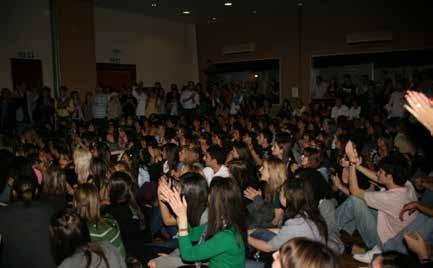
Tat same year, Aish UK partnered with MORI to research and provide external verifcation of the proven impact of its educational strategy in combating assimilation – a
positive recognition of the impact its programmes were having on the Jewish community.
Te building also became home to the frst outreach organisations’ in-house media and graphics teams, professionalising educational materials and campaigns.
But it was not without hardship. In 2004, an antisemitic arson attack caused severe damage, destroying much of its contents. “We were not going to let antisemitism either defne nor hold us back,” Rabbi Schif says, recalling a conversation as he walked through the charred debris at the time with the late Chief Rabbi, Lord (Jonathan) Sacks. “Rabbi Sacks almost commanded me: ‘Your response has to be the traditional Jewish response to antisemitism dating back to our slavery in Egypt. According to the level that they afict us, we will expand, we will grow stronger and bigger than ever before. Naftali- this is what you must do!’”
By 2005 the centre was restored, and that same year saw the launch of the Forum for Jewish Leadership (FJL) and Chazon (focusing upon the Charedi demographic). A year later, Rabbi Shlomo Farhi arrived to oversee the expansion of the Aish Schools division, and JRoots was born, employing Tzvi Sperber to embark on its mission of connecting thousands with Jewish identity through immersive journeys to places of Jewish interest.
Over the next decade, 379 Hendon Way adapted to meet the demands of a growing network of dynamic organisations with over a thousand people coming in through its doors each week.
Acting as an incubator, Jewish Futures continued to launch organisations and programmes which shaped Jewish life in the UK. Chazak was created in 2011, to provide inspiration and engagement for the young Sephardi community; Shelanu was developed to provide a sense of belonging and Jewish engagement of Israelis in London, in addition to the creation of Shabbat Walk, now Hand to Hand, expanding GIFT’s momentum of ofering to inspire and enable giving.
A major refurbishment in 2016 created
more space for GIFT and JRoots, while further works in 2023 expanded facilities for the enlarged GIFT team alongside the inauguration of Te Hub.
“379 wasn’t just a workplace,” says Rabbi Schif. “It was a dynamic incubator pulsating with vision and idealism to catalyse change and vitality for young Jews everywhere. So many of the programmes that defne Jewish Futures today and the Jewish community at large – and have touched thousands of lives – were conceived within those walls.”
For many, the building is tied to personal memories. “I’ll never forget my frst Friday Night and then High Holidays services there,” says Daniel Freeman “It was so uplifting, electric, and it made Judaism accessible in a way that spoke to a new generation.”
In 2025, Jewish Futures is once again moving forward. Te decision to relocate to Brent Street refects the organisation’s growth and its need to consolidate activity closer to Te Hub and Our Story. It is both a practical and symbolic step – a recognition that the spirit of 379 is not tied to a building, but to the people and purpose that have animated it for more than two decades.
Rabbi Schif sums it up: “We are not leaving 379 behind – we are taking its legacy with us. Every programme, every spark of Jewishness, every act of kindness and connection that happened there continues to live on. Brent Street is the next chapter, but our story of 379 will always be part of who we are.”
As the keys to 379 Hendon Way are handed back, its history remains indelible – from the excitement of its opening in 1999, through arson and rebuilding, to the launch of numerous transformative initiatives. For all who passed through its doors, 379 was more than an address. It was a place of creativity and vision.
And while Jewish Futures may be leaving the building behind, its spirit and core values will live on in every life touched by the work that began there and roll on into Brent Street and beyond.
This is Yaakov.
He’s the son Liat was pressured to give up. With Efrat’s support, she chose life.
Yaakov grew up to defend Israel, and today, he’s a father himself.
Three generations, alive because one mother had the strength to say Support Efrat. Say yes to life.



Escape this summer to the majestic Italian Alps and enjoy a luxurious stay at the brand-new V Retreats Cervino boutique hotel nestled at the foot of the breathtaking Matterhorn , near the Swiss border.
• Sumptuous Gourmet Me'hadrin Cuisine
• Complimentary lobby bar & wines
• Kashrut strict supervision of Rabbi Edrei, Kfar Maimon
• Beit Knesset on-site
• Spectacular mountain views - 60 elegant rooms
• Luxury spa & wellness center
• Free shuttle service to town
• Family-friendly summer activities
• Optional guided group tours
2 weakly sessions: Tuesday to Tuesday August 19 - September 2, 2025
From €5,500 per couple
Turin, Milan, Geneva
Charter fights available from TLV
Book your unforgettable Summer Alpine escape today!
Dear Rabbi
If Yom Kippur is supposed to be a time of atonement, then surely the Jewish people - of all people - have a lot of apologising to do. After all, we live in a world where Jews are constantly accused of being privileged and powerful. If Yom Kippur is when we stand before G-d to admit our sins, should we not also admit our “collective sins” before the world? Should we not apologise for the things that the nations resent us for? Maybe if we did, we might be a little more accepted.
Sebastian
Dear Sebastian
On behalf of the Jewish community around the world, I’d like to ofer a heartfelt apology:
I apologise to every headache that people endure, because it was a Jew, Felix Hofmann, who discovered Aspirin and deprived migraines of their victims. I apologise to the agony that accompanied medical and dental procedures, because Alfred Einhorn – another Jew – developed Novocaine, forever silencing the screams that once accompanied the dentist’s drill. I apologise to the poliovirus, cholera,
and the bubonic plague for Jonas Salk and Albert Sabin’s Jewish audacity to create vaccines. Who were we, after all, to interfere with such innocent microscopic killers simply trying to do their job? I apologise to every weak heart that was denied its right to fail, thanks to Jewish inventors who gave the world pacemakers and defbrillators.
To the adults out there I apologise for Levi Strauss who gave you jeans and the Jewish seamstresses who gave you the sewing machine. Once upon a time, people wore what they had – sackcloth and rags. But Jews had to interfere, making life more comfortable.
To the young adults out there I apologise for video games and the camera in your phone. And to the children of the world, I apologise for the Barbie Doll to Mr. Potato Head, and yes, even the teddy bear. Our people should have left you bored and toyless.
I also apologise most sincerely for the modern world’s greatest scourges: the mobile phone and WiFi. How dare we disrupt face-to-face communication and make people dependent on glowing screens and instant messaging? Te Stone Age worked perfectly well before us Jews showed up.
But let me be very clear: what I will not apologise for is our existence. I will not apologise for the stubborn fact that after Pharaoh, after Haman, after Hitler, after Hamas, we are still here. I will not apologise for our survival, for our covenant, for our refusal to die.
And I will certainly not apologise for Israel - the miracle of a people returning to its land, reviving its ancient tongue, and defending its children against those who still seek our destruction.
We need to apologise to G-d, and to ourselves, for the times we’ve fallen short of our own greatness. We apologise for not being better Jews, kinder people, more faithful partners in G-d’s mission.
But to the world that owes us its gratitude but ofers us its hatred – to those who demand our apology for living, breathing, building, defending, and thriving? No. A thousand times no.

regrets, my failings. But to the world I will say only this: we are here, we are alive, we are proud, and we will never apologise for it.
Tis Yom Kippur I will stand before Heaven and whisper my confessions, my
Wishing you well over the fast – and over your past.

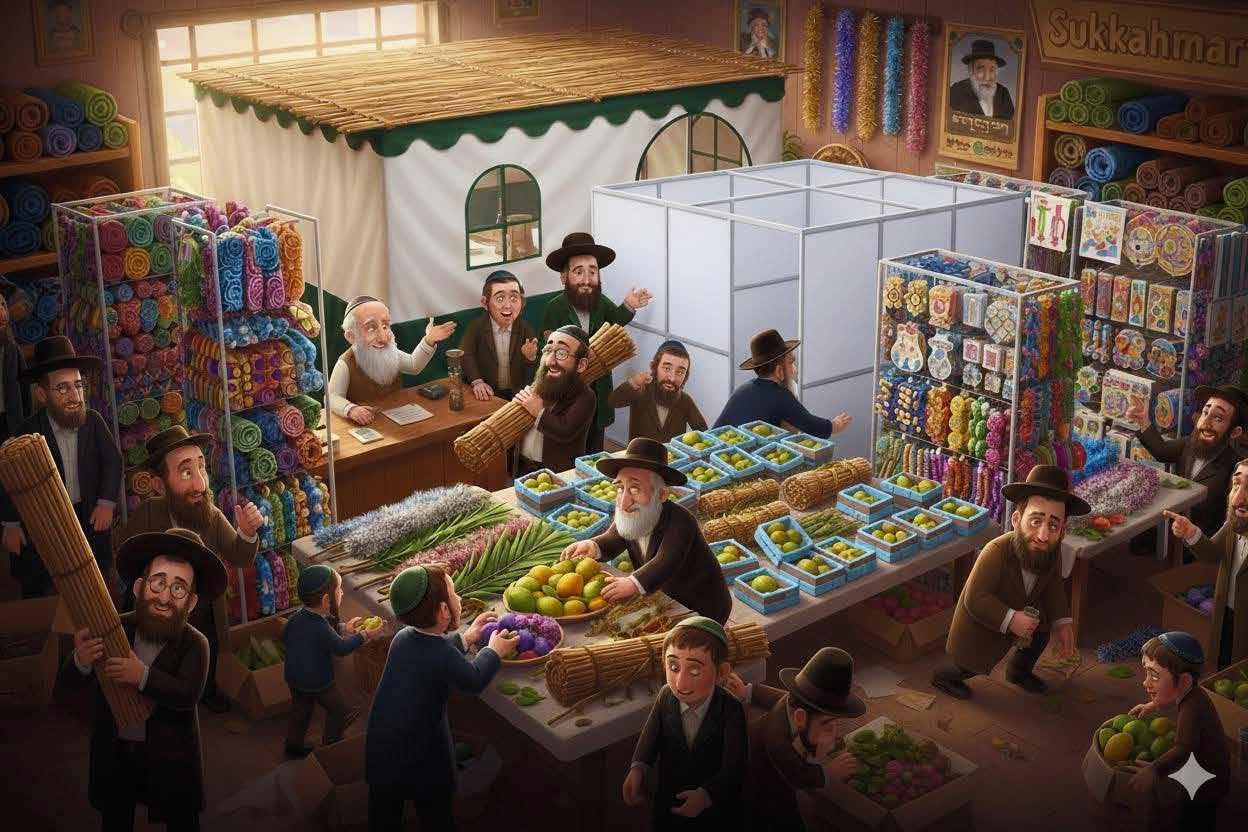













BY RABBI NAFTALI SCHIFF
Happy Birthday!
I was born during Ne’ilah- the very last service of Yom Kippur. For those familiar with the Jewish calendar, you’ll know this is not an ordinary time. Ne’ilah is the fnal hour of the holiest day of the year, the moment when, according to the traditional image, the gates of heaven begin to swing shut. Neila represents the last opportunity to fx the past as well as aspirations and visions for the year ahead. Neila is the dramatic climax of a 25-hour spiritual marathon, when the shul pulses with intensity, urgency, and fervent prayer.
Nearly thirty years ago, when we left our home in Jerusalem to take up the challenge of inspiring authentic Jewish engagement for young people in London, Rabbi Noach Weinberg zt”l, founder of Aish, gave me one fnal piece of advice. “I hear your birthday is at Ne’ilah,” he said. “Try to bring the fnal hour a little forward!” His words have resonated with me ever since. Don’t wait until the gates are closing. I feel this is relevant both in our personal lives and on the broader communal stage too. To live each day with the focus and urgency of Ne’ilah, before it’s too late.
Tose who know me may use my Ne’ilah birthday to explain my tendency to arrive late on occasion and a certain level of brinkmanship however, I would also claim that this propensity sometimes comes with an ability to get an incredible amount done at the last minute! But on a deeper level, I cannot escape the sense that the timing stamped into my very frst breaths has shaped the way I see life and the array of challenges that present when attempting to do big things for our people : urgent, precious and demanding action- now.
Ne’ilah is electrifying. Te rabbi’s sermons crescendo: this is your last chance, the fnal opportunity to get your act together before the heavenly gates close. Te melodies grow louder, the prayers quicker, the community more tightly bound with shared and elevated focus. It feels like the last scene of an action movie - countdown clock ticking, stakes high, the hero’s fnal chance before zero hour. And just like in those flms, the urgency is what drives decisive, courageous and meaningful action.
Judaism has always understood this power. “Teach us to number our days,
so that we may gain a heart of wisdom” (Tehillim 90:12). To “number our days” is to recognise that time is fnite. Scarcity makes diamonds precious; it makes time even more so. Our mission as Jews is too critical for us ever to lull ourselves into chill mode.
Pirkei Avot warns: “Do not say: when I have time I will study, for perhaps you will never have time” (Avot 2:4). And Rabbi Eliezer famously advises: “Repent one day before you die.” His students ask: “But how can a person know the day of his death?” He replies: “Ten repent today -for perhaps tomorrow you will die.” In other words, live every day with urgency, as if it were your last.
Some criticised my thinking that working with a sense of urgency should be ensconced in our mission of ensuring vibrant Jewish Futures equating it with chaos, frenzy, or panic. Tey argued that
come swiftly and soon. Te rabbis explain that ba’agala means the process itself should be quick, not drawn out through sufering. Vizman kariv means in the near future.
Te Acheinu prayer that we have been reciting and singing in unison of late intensifes this plea: Hashta ba’agala u’vizman kariv- Now, speedily, and soon. Te addition of Hashta -now - dates to the Mahzor Vitry of 12th-century France, amidst the horrors of the Crusades. For Jews then, “later” was not an option. Tey needed Rachamim, mercy now.
So too today. Surrounded by rising antisemitism, disconnection, and confusion in the world, we too must dare to say and indeed live with the demand of: Hashta. Now. Much as the Berdichever exemplifed, we must demand immediacy both from ourselves and from the Almighty.
Te Hebrew word for will - ratzon -

people who rush create brittle energy that eventually burns out. But this misses the point. True urgency is not frantic. It is calm under fre.
Tink of doctors in an emergency room. Te situation is urgent, seconds matter, but the professionals are steady, focused, unfustered. Or generals on the battlefeld: decisions must be made quickly, but the best leaders act with clarity and composure.
Urgency in Jewish life should be like that: not jittery panic, but calm clarity that recognises the stakes and acts decisively. Te Jewish mission in the world is too critical for phlegmatic decision making delaying bold action.
Our prayers are saturated with urgency. We beg God daily:
“Reveal the glory of Your kingship speedily.”
“Return us upright to our land soon.”
“Let us behold the splendour of Your strength quickly.”
Te Kaddish prayer who’s origins date back 2,000 years climaxes with the words “Ba’agala u’vizman kariv”may redemption
shares its root with ratz, to run. What you truly desire is what you run towards. Will and urgency are bound together.
Te Ramchal in Mesillat Yesharim calls this zerizut: eagerness to act quickly on opportunities for connection and goodness. Delay risks losing the moment. Zerizut is not reckless speed, but passionate focus.
Te foundations of our people during the Exodus itself was marked by this urgency: b’chipazon — in haste. Redemption came suddenly, and we had to seize it without delay. Similarly, the halacha instructs that as soon as Yom Kippur ends, we begin building the sukkah. Don’t let Ne’ilah’s intensity dissipate into “later.” Translate it into action now.
Te Talmud tells of the great Rabbi Choni HaMa’agel, who during a drought drew a circle on the ground and declared he would not move until God sent rain. It was not a polite, patient request. It was urgent, insistent: I’m doing my part- Now do Yours God! Now, Not later.
So too Rabbi Levi Yitzchak of Berditchev, who stormed the heavens with
bold petitions, demanding salvation not in some far-of future but immediately. Tis is not arrogance. It is the deep seated knowledge that change is possible now.
Urgency on the wider stage begins with outrage. Outrage that the world is not yet whole. Outrage that arrogance and superfciality masquerade as success, that homes are shattered, that young people drift without meaning.
For too long, Jews in comfort have lulled themselves into believing that worldly walls of wealth or status can provide security. Perhaps more than previously today we all know they cannot. To be content with the brokenness of our world is to be complicit.
Ne’ilah calls us to refuse complacency. To say: the gates are closing. Wake up. Do something.
At Jewish Futures, this urgency is not theoretical. It is the air we breathe. We face real stakes: disconnection, apathy, assimilation, loss of our younger generation. To delay is to lose more young Jews each day. If we care and we have tools to respond, then we must act with urgency. Urgency does not mean chaos. It means discipline. It means clarity. Like a doctor in A&E, or a general under fre, it means recognising that the task cannot wait. We can all come round and be born at Ne’ilah! What does it mean? Perhaps it means never assuming you have forever. Perhaps it means hearing Rabbi Weinberg’s voice: bring the fnal hour forward. Live every day with urgency, with the gates wide open.
Food tastes sweeter when you know it won’t last. A sunset burns brighter when you know it will fade. A life is richer when you live as though every moment counts.
Ne’ilah teaches us that tomorrow is never guaranteed. Sukkot teaches us to seize joy immediately, to build quickly, to live deliberately.
So what’s the rush? Te rush is life itself. Now. Not later.

/// What3Words is a geocoding system that has divided the world into a grid of 57 trillion 3-by-3 squares, each of which is identifed by a unique three-word address. In this column, Rabbi Naftali Schif refects upon three words each week, relating to core issues of the day. Feedback welcome! nschif@jfutures.org
Rabbi Naftali Schif is the Founder and Chief Executive of Jewish Futures
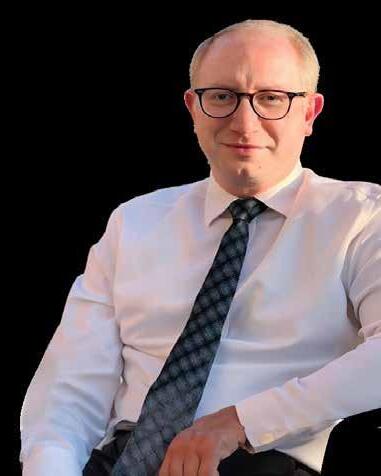





BY RABBI JONATHAN TAWIL
On Yom Kippur, we do something unusual. After the Shema, we say out loud: Baruch shem kevod malchuto le’olam va’ed. Every other day of the year, we whisper it. Why? Te Gemara explains that this phrase is angelic in nature, and we as mortals do not have the right to say it aloud. But on Yom Kippur, when we rise to something closer to the level of angels, we allow ourselves to give it voice. Te Zohar adds another layer. It compares Baruch shem to the wings of the angels. Just as angels cover themselves with wings when standing before God, so too this phrase carries a sense of heavenly covering. Te Zohar speaks of six wings, yet after the destruction of the Beit HaMikdash, two wings were lost. Which wings were those? Te ones that embodied kevod malchuto — the palpable sense of God’s glory in the world. When the Temple stood, we could feel God’s presence. After its loss, that experience was diminished. On Yom Kippur, for one day, we are allowed to lift our voices again
and reclaim what was lost — if only briefy — by saying Baruch shem aloud. But then the question arises: if we no longer feel God’s glory as clearly as before, on what does our relationship rest? Te answer is emunah. Faith that sustains us even when we cannot see, even when the world feels contradictory. And nowhere is this challenge of emunah more striking than in the story we return to again and again on these days: the Akeidah.
Tere is a debate: did the Akeidah happen on Rosh Hashanah or on Yom Kippur? Our liturgy seems to cover both bases, placing it at the center of our prayers on the Yamim Noraim. After the dramatic climax of the story — the angel staying Avraham’s hand — the Torah could have ended with a triumphant return to Beersheba. But instead, the text takes a surprising turn. It tells us that Avraham’s brother Nahor also had children — ten of them, through his wife and concubine.
Why do we need to know this at that exact moment? Avraham, who has endured exile, fre, famine, circumcision, and fnally the trial of sacrifcing his beloved son, comes home with nothing more than a
test passed. And at that very moment, we hear that Nahor — an idolater, a man with no great trials recorded in the Torah — has ten children, comfort, legacy, blessing. It almost feels cruel. And it captures the oldest question in religious life: why do the righteous sufer while those who are indiferent to God seem to prosper?
As children, we are often told a simple equation: keep the mitzvot and you will have health, success, and happiness. One plus one equals two. But as we grow, we see that reality is not so neat. Good people face tragedy, illness, loneliness. While others, less faithful, live lives of ease. Tis is the struggle not only of every person, but of the greatest tzaddikim. Avraham, after everything, still had to hear about Nahor’s children. Yaakov, when he sets out to marry at the age of eighty-four, faces hardship and trickery, while his brother Esav simply marries again, easily, without struggle.
And yet — what is most striking is what Avraham and Yaakov do not say. Tey never lodge a complaint. Tey never turn to God and ask, “Why him and not me?”
Tey stagger under the contradictions, but they stabilize themselves through faith. Teir greatness lies not in having all the answers, but in continuing the
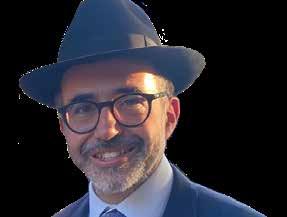
journey with emunah, trusting God even when the picture doesn’t add up. Tat is why on Yom Kippur we dare to say Baruch shem aloud. We acknowledge that the glory of God is not always visible, that two wings have been lost, that we do not experience what our ancestors once did. But instead of silence, we answer with emunah. We raise our voices together in the only way we can — proclaiming God’s kingship even in the face of paradox.
And maybe that is the deepest work of Yom Kippur. To admit that life is not a simple equation. To stand honestly before God with our questions and our contradictions. And still, like Avraham, like Yaakov, to keep walking. To whisper when necessary, but on this day to proclaim aloud: Baruch shem kevod malchuto le’olam va’ed.

BY RABBI GIDEON GOLDWATER
Resolutions. Platitudes. Clichés.
Te sound of the shofar has pierced the air and a collective pause seems to hang over the community. Tese are the days when Jews across the world take stock, make amends, and strive to reset the course of their lives. Although, for all the solemnity and sincerity, we hear the same challenge: refect, reset, renew yourself. And yet, somehow, we fnd ourselves circling back to the same struggles, the same habits, the same old story.
But here’s the irony: we don’t only fail to change, we even know that we’re going to fail! Each year, somewhere between the shofar and Ne’ilah, we fnd ourselves asking that weary question: “Why does this never stick?” Sometimes we even think we’ve cracked it: “Ah! Tis year I’ve found the key, this year will be diferent.”
We stand during Neilah and are fully convinced that we have changed and that this is the year that it’s really going to be diferent. And then… it isn’t. Te question circles back twelve months later.
So how do we break the loop? Or is it doomed to repeat forever?
In business, you’d never accept this. As Phil Knight, founder of Nike, put it: “Life is growth. Grow or die.” A company that repeats the same mistakes is heading for collapse. So why do we tolerate it in our spiritual lives? When we say Zochreinu lechayim - remember us for life - what we’re really saying is: don’t let me stagnate. Give me growth. Grow or die!
But growth doesn’t come from inspiration alone. Whoever frst said “insanity is doing the same thing over and over again expecting diferent results” was right. Change demands newness. Fresh thinking. Courage. Or in one word: boldness
Tat’s why at Aish we’ve named this year’s theme Bold Innovation. Because to move anyone or anything, you frst
need take-of. You need to leave the runway of routine and set a new course. Tat’s exactly what inspired our “Fly Holydays” campaign; 20,000 homes reached, over 100,000 views online in just days. Its message is simple: you are in the pilot seat of your own destiny. We were trying to jolt people into deep thought and refection. Focus. Intent. Mindful experiencing of the holiest days of the Jewish calendar. Don’t let them fy past without recognising that the choice is in your hands.
No rabbi, no article, no viral video can do the work for you. Tey can only point you in the right direction. Te bold step must be yours. As one of my teachers told me, quoting from the Chassidic masters: “You have to develop a will to want - to aspire to desire greatness.”
Tat’s what “Bold Innovation” means. Not gimmicks, but courage. Not the comfort of familiar inspiration, but the risk of real change. Te recognition of vulnerability and weakness, together with
the creative passion to courageously step outside the box. If we can successfully muster the boldness to do this, then we won’t be asking those same questions next year and instead can focus on helping others break the loop also.
At Aish, we are constantly testing, creating, and innovating, trying to fnd new ways to make Jewish life relevant and irresistible, especially around moments like this time of year. But the real work begins with each of us.
So this year, don’t just ask the same tired question. Don’t just notice the cycle. Break it. Take ownership. Step up. Because if we dare to be bold, then next year we won’t be asking why nothing ever changes. We’ll be marvelling at how far we’ve fown.
Rabbi Goldwater is Managing Director of Aish UK and Jewish Futures, leading programmes that impact over 20,000 young Jews. He holds a BSc in Psychology and an MA in Jewish Education



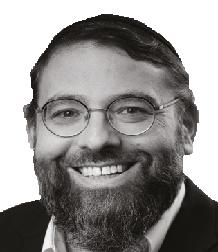



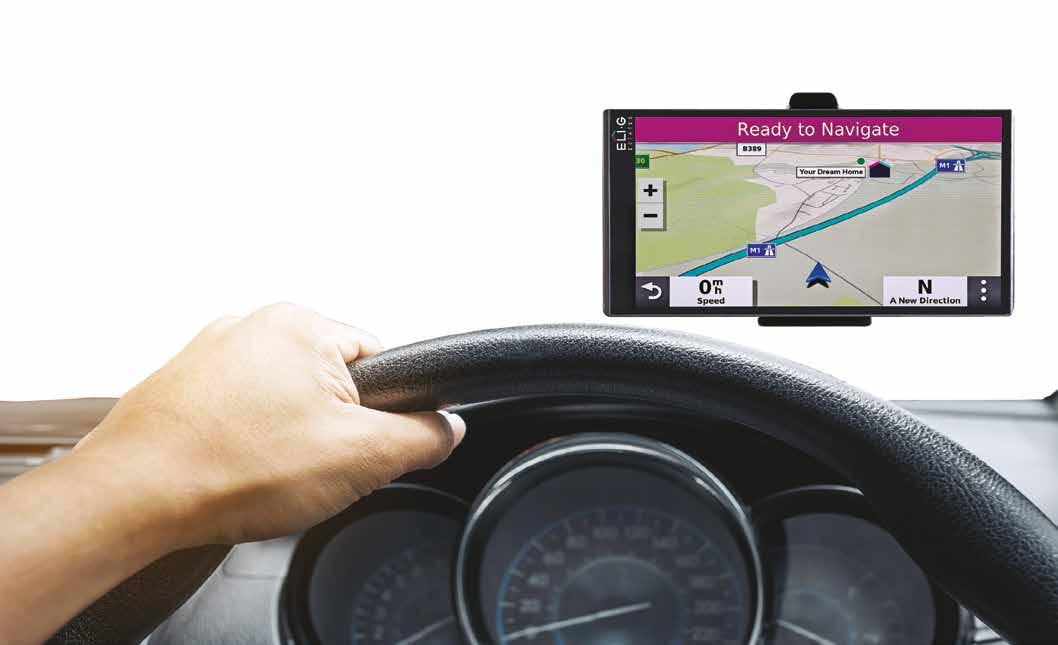






finished
HIGHLAND
We

Let
Our



The Torah reading for Yom Kippur morning describes the service performed on this day by the Kohen Gadol (high priest) in the Holy Temple in Jerusalem.
A special feature of the Yom Kippur service was the casting of lots over two he-goats — equal in age, size and appearance — to determine which shall be ofered to G-d in the Holy Temple, and which shall be dispatched to carry of the sins of Israel to the wilderness.
The climax of the service was when the Kohen Gadol entered the innermost chamber in the Temple, the “Holy of Holies.” Wearing special garments of pure white linen, the Kohen Gadol would enter the sacred place with a pan of burning coals in his right hand, and a ladle containing an exact handful of ketoret in his lef. Inside the Holy of Holies, he would place the ketoret over the coals, wait for the room to fill with its aromatic smoke,
AFGHANISTANI JEWS ATE AS MANY AS SEVEN MEALS DURING THE DAY BEFORE YOM KIPPUR INCLUDING FISH IN THE MORNING.
and hastily retreat from the holy place.
“This shall be an everlasting statute for you,” the Torah reading concludes. “...For on this day He will forgive you, to purify you, that you be cleansed from all your sins before G-d... once a year.”
During the afernoon Minchah service, we read chapter 18 of Leviticus, which details the prohibitions against incest and other deviant sexual behaviors.
The Torah reading is followed by a haforah (reading from the Prophets) which tells the story of Jonah — the prophet who was sent to prophesy the destruction of the sinful city of Ninveh, ran away from G-d, was swallowed by a fish, and learned the power of prayer and repentance to evoke G-d’s mercy and annul the harshest decrees.
A SYRIAN CUSTOM IS FOR PEOPLE BEFORE NEILAH TO APPROACH THE ARK AND KISS THE TORAH SCROLLS AND BEG FORGIVENESS FOR ANY LAWS THEY MAY HAVE BROKEN DURING THE YEAR.
MOROCCAN JEWISH MEN WILL REMAIN IN SHUL THROUGHOUT THE NIGHT RECITING TEHILLIM WHILST THE JEWS OF INDIA OBSERVE YOM KIPPUR BY STAYING IN THEIR HOMES WITH THE DOORS CLOSED AND LOCKED
IN TURKISH COMMUNITIES, THE SHAMASH OF THE SHUL POURS ROSE WATER OR TOBACCO ON THE HANDS OF THE WORSHIPERS, WHILST THE JEWS OF ZIMBABWE SLAUGHTERED ONE CHICKEN IN THE NAME OF EACH MEMBER OF THE FAMILY TWO NIGHTS BEFORE THE FAST
Last week’s answer: Can you name two different occasions when Rosh Chodesh will fall during the coming week, yet no Shabbat Mevorachim prayers are said on the preceding Shabbat?
The answer is:
1. (The easy one) The Shabbat before Rosh Hashana, which is the Shabbat before Rosh Chodesh Tishrei.
2. When Rosh Chodesh falls on Shabbat and Sunday, the 1st day Rosh Chodesh is the Shabbat. Despite the fact that there will be a Rosh Chodesh that coming week (the 2nd day on Sunday), Shabbat Mevorachim will not be said on Shabbat, as they were said the previous week!
This week’s Question:
On one historic Yom Kippur, the entire Jewish people ate and drank and were praised for it by Hashem
When did this occur?

Te sukkah stands with branches light, A fragile home beneath the night.
Trough leafy roof the stars appear, Reminding us that God is near.
Children sing with voices sweet, Welcoming guests we’d love to meet.
Avraham’s chair waits by the wall, David and Rachel join us all.
Te lulav shakes in steady hand, Etrog’s fragrance flls the land.
A symbol strong of hearts combined, Of Jewish soul, of faith aligned.
But in the sukkah, joy runs wild, Not just for sage or saintly child.
Stories bloom in laughter’s style, Songs erupt in Gangnam Style!
A dance erupts, a festive cheer, Te season’s gladness drawing near.
And there beside the wooden seat, A hippopotamus comes to eat!
Not real of course, just stufed with thread, A toy the children bring to bed.
Yet somehow in the sukkah’s glow, Even hippos want to show
Tat every being, great or small, Can join the sukkot festival.
Te Jewish Weekly prints a line: “Families gathered, fruit and wine.
Across the towns, in every street, Te sukkot stand where
The goal of a word wheel puzzle is to create as many words possible with the letters in the word wheel. Each word must contain at least three letters. You can only use each letter once and every word must have the letter in the centre of the wheel.
Q: What do librarians take with them when they go fishing?
A: Bookworms!
Q: What did one wall say to the other wall?
A: “I will meet you at the corner!”
Q: What did one toilet say to the other?
A: “You look a bit flushed!”
Q: Why was the broom late?
A: It over swept!
neighbors meet.”
Photographs of roofs of green, Of meals beneath the autumn sheen. From London’s lanes to Yerushalayim, Te pages sing a festive rhyme.
And so we dwell these feeting days, With thankful hearts, in humble ways.
We leave behind our roofs of pride, To sit with trust, with God beside.
For joy is not in walls of stone, But in the sukkah’s fragile dome.
In laughter, dance, and tales retold, In blessings more than wealth or gold.
So shake the lulav, let us sing, Let children clap and voices ring.
In autumn air, with faith we smile, Sukkot goes on—Gangnam Style!
B
E M A R N I T S
1. Is always in front of you but can not be seen?
2. Take one out and scratch my head, I am now black but one was red?
3. What is as light as a feather but even the strongest man cannot hold for long?




With stricter Inheritance Tax rules, planning ahead has never been more important. Of all the strategies we've put in place for clients over the years, one stands out as the most popular. It's simple, cost -effective, and works regardless of the type of assets you hold.
If your goal is to mitigate Inheritance Tax (IHT) and:

You're in good health

You're aged 88 and under (the younger, the better)

You have a lump sum available
…then this could be the silver bullet to solving your Inheritance Tax conundrum. It involves a one-off gift to a special trust and delivers a predictable, potentially generous return designed to mitigate your Inheritance Tax exposure helping to secure your family’s financial future when they need it most.
To receive a short article explaining how this unique, expertly crafted strategy works, simply email ; article@arnoldaaron.co.uk


